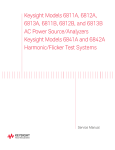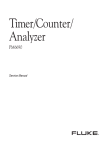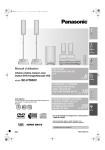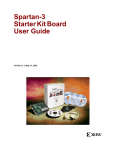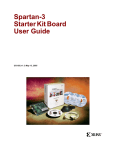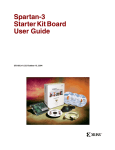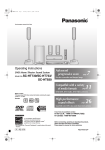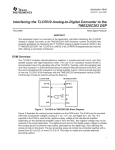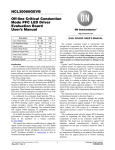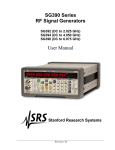Download Distribution Amplifiers - Stanford Research Systems
Transcript
Operation and Service Manual FS730 (Single) & FS735 (Dual) Distribution Amplifiers 1290-D Reamwood Avenue Sunnyvale, California 94089 Phone: (408) 744-9040 • Fax: (408) 744-9049 email: [email protected] • www.thinkSRS.com Copyright © 2008,2012, by SRS, Inc. All Rights Reserved. Version 1.2 (11/2012) ii Distribution Amplifiers Certification Stanford Research Systems certifies that this product met its published specifications at the time of shipment. Warranty This Stanford Research Systems product is warranted against defects in materials and workmanship for a period of one (1) year from the date of shipment. Service For warranty service or repair, this product must be returned to a Stanford Research Systems authorized service facility. Contact Stanford Research Systems or an authorized representative before returning this product for repair. Information in this document is subject to change without notice. Copyright © Stanford Research Systems, Inc., 2005. All rights reserved. Stanford Research Systems, Inc. 1290-C Reamwood Avenue Sunnyvale, California 94089 Phone: (408) 744-9040 Fax: (408) 744-9049 www.thinkSRS.com Printed in U.S.A. Stanford Research Systems Distribution Amplifiers Table of Contents Introduction 1 3 Overview Amplifier options 10MHz Distribution Amplifier (Opt 1) 7 8 11 11 12 14 Overview Specifications Checkout Calibration Circuit description Component parts list 5MHz Distribution Amplifier (Opt 2) 21 22 23 23 Overview Specifications Checkout Calibration CMOS Logic Distribution Amplifier (Opt 3) 27 28 29 29 30 31 Overview Specifications Checkout Calibration Circuit description Component parts list Stanford Research Systems iii iv Distribution Amplifiers Table of contents (continued) Broadband 50Ω Distribution Amplifier (Opt 4) 37 38 41 41 42 44 Overview Specifications Checkout Calibration Circuit description Component parts list Broadband 75Ω Distribution Amplifier (Opt 5) 51 52 53 53 54 Overview Specifications Checkout Calibration Component parts list SDI (Serial Digital Interface) Distribution Amplifier (Opt 6) 61 62 63 Overview Specifications Component parts list Model numbers and chassis configurations (FS730 & FS735) 67 68 70 Overview FS730 Component parts list FS735 Component parts list Schematic Diagrams 73 Option 1-5 Stanford Research Systems Distribution Amplifiers v Safety and Preparation for Use Line Voltage The FS730 & FS735 operate from a 90 to 132 VAC or 175 to 264 VAC power source having a line frequency between 47 and 63 Hz. Power Entry Module A power entry module on the back panel of the instruments provides connection to the power source and to a protective ground. Power Cord A detachable, three-wire power cord for connection to the power source and protective ground is provided. The exposed metal parts of the box are connected to the power ground to protect against electrical shock. Always use an outlet which has a properly connected protective ground. Consult with an electrician if necessary. Grounding BNC shields are connected to the chassis ground and the AC power source ground via the power cord. Do not apply any voltage to the shield. Line Fuse The line fuse is internal to the instrument and may not be serviced by the user. Operate Only with Covers in Place To avoid personal injury, do not remove the product covers or panels. Do not operate the product without all covers and panels in place. Serviceable Parts The FS730 & FS735 do not have any user serviceable parts inside. Refer service to a qualified technician. Stanford Research Systems vi Distribution Amplifiers Symbols you may Find on SRS Products Symbol Description Alternating current Caution - risk of electric shock Frame or chassis terminal Caution - refer to accompanying documents Earth (ground) terminal Battery Fuse On (supply) Off (supply) Stanford Research Systems Distribution Amplifiers Introduction Distribution amplifiers are used to create several copies of a signal. There are many application areas and each requires different amplifier characteristics. In each application the amplifier is selected to preserve, improve (or minimally degrade) the input signal’s bandwidth, amplitude, pulse shape, phase noise and jitter characteristics. SRS distribution amplifiers are available in two chassis form factors: The FS730 is a half-width, 1U high chassis that holds one distribution amplifier with BNC connectors and indicator LEDs on the front panel. The power cord is on the back panel. Two FS730s may be mounted side-by-side in a 19” rack using the optional rack mount accessory. Figure 1. Front panel of FS730 (10MHz distribution amplifier shown here) Figure 2. Rear panel of FS730 Distribution amplifier. Stanford Research Systems 1 2 Distribution Amplifiers The FS735 is a full-width, 1U high chassis that can hold two distribution amplifiers. The BNCs and power cord are on the rear of the instrument. The indicator LEDs are on the front panel of the instrument. Figure 3. Front panel of FS735 dual, rack-mounted, distribution amplifiers Figure 4. Rear panel of FS735 dual, rack-mounted, distribution amplifiers. Stanford Research Systems Distribution Amplifiers Distribution amplifier options 10 MHz and 5 MHz distribution amplifiers. It is common to distribute a 10 MHz or 5 MHz frequency reference (from a rubidium or cesium oscillator, for example) throughout a facility. This frequency reference is used as the timebase for instruments in test & measurement, broadcast, telecommunication or basic research applications. A distribution amplifier used in this application should provide sine wave outputs, amplitude leveling, low additive phase noise, low spur levels, narrow bandwidth, high channel-tochannel isolation, small phase variation with temperature, and high return loss on all 50Ω inputs and outputs. CMOS Logic distribution amplifier. A CMOS Logic distribution amplifier has one logic-level input and several outputs. A typical application is the distribution of a 1 pulse-per-second timing mark from a GPS receiver or an 8kHz frame clock for telecommunications. There are no established standards for sending 5 V logic pulses over 50Ω coax. Standard logic ICs are not designed to drive 50 Ω loads. To avoid problems, a logic distribution amplifier should have the following characteristics: high input impedance with hysteresis, high current outputs with 50 Ω source impedance, fast transition times, small overshoot, small ground bounce, small insertion delay and low channel-to-channel timing skew. Broadband 50 Ω and 75 Ω distribution amplifiers. Broadband distribution amplifiers have one analog input and several analog outputs. A wide bandwidth allows these distribution amplifiers to be used in many applications including the distribution of frequency references, IRIG timing signals, composite video, audio, etc. Typically test & measurement and research applications will use 50 Ω inputs and outputs while video and broadcast applications will use the 75 Ω version. Important characteristics of broadband amplifiers include input protection, wide bandwidth (including dc), flat frequency response, large dynamic range, low offset voltage, low noise, high slew rate, and low distortion. Outputs should have high current compliance and accurate 50 Ω or 75 Ω output impedance for high return loss. Composite video applications require low differential gain and low differential phase errors to prevent color shifts or color saturation changes verses luminance levels. Stanford Research Systems 3 4 Distribution Amplifiers SDI distribution amplifier SDI (serial digital interface) is a physical interface used to transmit uncompressed component digital video in a variety of formats. There are several standards defined by the Society of Motion Picture and Television Engineers (SMPTE) which transmit 800 mVpp logic over 75 Ω coax at rates up to 2.97Gb/s. Cable attenuation and dispersion degrade SDI signals. Two techniques are used to restore signals: equalization and reclocking. Equalization circuits modify the frequency response of the input amplifier to compensate for the cable losses at high frequencies. Reclocking circuits recover the data clock (by phase locking a local oscillator to transitions in the data stream) and resynchronize the output data to this recovered clock. Important characteristics of an SDI distribution amplifier include input cable equalization, agile clock recovery and resynchronization, good matching of the 75 Ω cable impedance to both inputs and outputs, fast output transition times, small overshoot, and compliance with common data rates (270, 1483.5, 1485, 2967 and 2970 Mb/s). More in development Other distribution amplifiers, which are compatible with the FS730 & FS735 systems, are currently in development. Check the SRS web site, www.thinkSRS.com, for current information. Stanford Research Systems 10MHz Distribution Amplifiers 10MHz Distribution Amplifier (Option 01) Stanford Research Systems 5 6 10 MHz Distribution Amplifiers Stanford Research Systems 10MHz Distribution Amplifiers 10 MHz distribution amplifier (Option 1) Figure 5. Single 10MHz Distribution amplifier, FS730/1. The FS735 dual distribution amplifier is also available. Overview This distribution amplifier is intended to distribute a low noise 10 MHz frequency reference. The amplifier has one input and seven outputs, all on BNC connectors. The input is coupled through a series LC network allowing the use of inputs with a dc offset. The input source impedance is 50 Ω at 10 MHz. The input is conditioned by a limiter. The limiter provides several advantages in this application; amplitude modulation is removed from the input signal, outputs have fixed amplitude, input noise that occurs more than 50 mV away from the zero-crossing is blocked, and virtually any waveform with a duty cycle near 50% may be used as an input. The input limiter is followed by a bandpass filter and a fixed gain amplifier. This signal is passed to seven output amplifiers, each of which is followed by a low pass filter and an output transformer. All of the outputs have 50 Ω source impedance and provide a 1Vrms (+13 dBm) sine wave into a 50 Ω load. There are four indicator LEDs. The “power” LED indicates that the unit has ac power. The “signal” LED indicates that an input signal is present. The “overload” LED indicates that the input signal has excessive amplitude. The “fault” LED indicates one or more of these conditions: no input signal, excessive input signal, or low internal dc power supply. Stanford Research Systems 7 8 10 MHz Distribution Amplifiers Specifications Input Frequency Level 10 MHz, ±1% 0 dBm to +16 dBm (0.6Vpp to 4Vpp) Any with ≈ 50% duty 50 Ω, ±5% at 10 MHz Series LC. (Open at dc) Waveform Impedance Coupling Outputs Waveform THD Level (50 Ω load) Level (high-Z load) Impedance Coupling Bandwidth Spurious Isolation Pulling TC of phase Sine <1% +13±1 dBm (1 VRMS, 2.82 VPP) 2 VRMS (5.6 VPP) 50 Ω, ±5% at 10 MHz Transformer. (Short at dc) ±200 kHz (-3 dB) < −120 dBc within 100 kHz > 100 dB (1) < 1 ps (1, 2) ≈ −5 ps/°C (1) Measured with 1Vrms at 10.001 MHz from a 50 Ω source applied to an adjacent output. The isolation increases at frequencies far away from 10 MHz. (2) The pulling is comparable to that caused by a reflected wave from an unterminated cable on an adjacent output. Additive phase noise (with +7 dBm input) Offset (Hz) 1 10 100 1k 10k 100k Noise (typ) (dBc/Hz) −125 −135 −146 −155 −158 −158 Stanford Research Systems 10MHz Distribution Amplifiers Figure 6 . The 10MHz Distribution amplifier input limiter characteristic. Figure 7. The 10MHz distribution amplifier, output power vs. frequency. Stanford Research Systems 9 10 10 MHz Distribution Amplifiers Figure 8. The 10MHz Distribution amplifier sine wave output. Figure 9. The 10MHz Distribution amplifier additive phase noise vs offset frequency. Stanford Research Systems 10MHz Distribution Amplifiers Test and calibration. Check out. With the instrument plugged into an ac power source and turned “on”, apply a 10MHz (±1kHz or ±100ppm), 1.41VPP (+7dBm or 0.5 VRMS) sine wave to the 50Ω input. Verify that each of the seven outputs provides a clean sine wave output of 2.82VPP on an oscilloscope when driving a 50Ω load. The output amplitude should decrease by a few percent when the input is changed to 9.9MHz or 10.1MHz. The SIGNAL LED should go “off” if the amplitude is reduced below 0.4VPP. The OVERLOAD LED should go “on” when the input is increased above 5.2 VPP (but do not exceed 6 VPP while testing). Calibration. With the instrument plugged into an ac power source and turned “on”, apply a 10MHz (±1kHz or ±100ppm), 1.41VPP (+7dBm or 0.5 VRMS) sine wave to the 50Ω input. 1. Adjust the core of the tuned transformer (T101) to maximize the amplitude of the Channel 1 output when driving a 50Ω load. 2. Adjust the amplitude control pot (P100) for 2.82VPP (+13dBm or 1.00 VRMS) sine wave amplitude on the Channel 1 output when driving a 50Ω load. 3. Verify that 10MHz is present at each of the seven outputs. Stanford Research Systems 11 12 10 MHz Distribution Amplifiers Circuit Description 10MHz distribution amplifier (Refer to schematics FS1_1B and FS1_2B) This distribution amplifier is intended to distribute a low noise 10 MHz frequency reference. The amplifier has one input and seven outputs, all on BNC connectors. Power. The unit is powered from a universal input, +24Vdc power supply. Passive L-C filters (L100, L101, C100, C101) are used to remove switching noise from the +24V. The power supply is regulated by a low drop-out regulator (U100) to provide a clean +22Vdc supply. Input. The user-supplied 10MHz is applied at J102. A low-Q, series resonant L-C circuit (C109, C110, L102) is used to ac couple and band-pass the input signal and drive the primary of the transformer T100. The transformer doubles the amplitude of the input signal to improve the input noise figure. The transformer input impedance is about 50Ω (R113 divided by the square of the turns ratio of T100). The inductor, L103, compensates for the input capacitance of the transistor pair, Q100 &Q101. Limiter. The balanced output from T100 drives the input to the differential pair/limiter (Q100 & Q101). The limiter amplitude is set by the constant current source, Q102, which has 4.096 V across its 1.24kΩ emitter resistor to provide 3.3mA of collector current. Q103 is used to temperature compensate the base-emitter voltage (≈0.65V) across Q102. The R-C filter, R133 & C117, has a 0.5Hz cutoff frequency to filter residual voltage reference noise. The output from the limiter is a differential square wave of 3.3mA. The limiter has relatively high gain: the output will reach about 90% of full scale for inputs greater than 200mVpp. This signal is applied to the primary of the tuned transformer, T101. This transformer is a 10.7MHz intermediate frequency transformer (IFT) that has been tuned down to 10MHz by C112 and C113. The turns ratio of T101 is 7:1 and so the input impedance is about 72×249=12.2kΩ. The output from T101 has an amplitude of about 5.4Vpp. The output is a relatively low distortion sine wave owing to the high-Q of the IFT. Amplifier. The output of T101 is amplified by U102, which has a nominal gain of ×2.4 to provide an output of about 13Vpp. This output drives the seven buffer amplifiers which provide the seven output channels of the distribution amplifier. It also drives the output amplitude peak detector, D101 & C121. Buffer Amplifiers. There are seven identical output amplifiers. This description will refer to the reference designators for the channel 1 output. The buffer amplifier consists of three emitter followers, Q210, Q211 and Q212. The emitter followers are connected in series to Stanford Research Systems 10MHz Distribution Amplifiers provide very large channel-to-channel isolation. The emitter of the third follower drives a 2:1 output transformer via a series R-C (R219 & C212) to reduce the output impedance by 4:1 in order to drive a 50Ω load. The 50Ω user load is driven via a low-pass filter. The filter has a pass-band to 11.5MHz and a notch at 20MHz in order to eliminate harmonic distortion at the output. Status LEDs. The input level detector is used to detect signal levels which are too small or too large. The detector, D100, is a dual Schottky diode that is biased “on” by R104, R105 and R107. (Biasing the detector “on” improves its ability to detect low signal levels.) The output of the level detector is compared with fixed thresholds by two comparators (U101). The SIGNAL LED will be “on” for inputs greater than about 500mVpp and the OVERLOAD LED will be “on” if the input signal exceeds about 5Vpp. The user supplied 10MHz input should be somewhere between these two levels. The FAULT LED is controlled by U104 & U105 which turns the LED “on” if any of the following conditions exist: no signal at the input, overload at the input, +22V supply is below +20.5V. Stanford Research Systems 13 14 10 MHz Distribution Amplifiers Option 01 (10MHz) Component parts list. Part Number Reference Value Description 5‐00516 C‐100 330U HIGH RIPPL Capacitor, Electrolytic, High Ripple, High Temp (‐55/+105 DEG C) 5‐00516 C‐101 330U HIGH RIPPL Capacitor, Electrolytic, High Ripple, High Temp (‐55/+105 DEG C) 5‐00319 C‐102 10U/T35 SMD TANTALUM, D‐Case 5‐00319 C‐103 10U/T35 SMD TANTALUM, D‐Case 5‐00299 C‐104 .1U Capacitor, Mono, 50V, 10%, X7R, 1206 5‐00299 C‐105 .1U Capacitor, Mono, 50V, 10%, X7R, 1206 5‐00399 C‐106 .01U Capacitor, Mono, 50V, 5%, X7R, 1206 5‐00399 C‐107 .01U Capacitor, Mono, 50V, 5%, X7R, 1206 5‐00399 C‐108 .01U Capacitor, Mono, 50V, 5%, X7R, 1206 5‐00378 C‐109 180P Capacitor, Mono, 50V, 5%, NPO, 1206 5‐00380 C‐110 270P Capacitor, Mono, 50V, 5%, NPO, 1206 5‐00299 C‐111 .1U Capacitor, Mono, 50V, 10%, X7R, 1206 5‐00365 C‐112 15P Capacitor, Mono, 50V, 5%, NPO, 1206 5‐00365 C‐113 15P Capacitor, Mono, 50V, 5%, NPO, 1206 5‐00299 C‐114 .1U Capacitor, Mono, 50V, 10%, X7R, 1206 5‐00299 C‐115 .1U Capacitor, Mono, 50V, 10%, X7R, 1206 5‐00299 C‐116 .1U Capacitor, Mono, 50V, 10%, X7R, 1206 5‐00516 C‐117 330U HIGH RIPPL Capacitor, Electrolytic, High Ripple, High Temp (‐55/+105 DEG C) 5‐00299 C‐118 .1U Capacitor, Mono, 50V, 10%, X7R, 1206 5‐00299 C‐119 .1U Capacitor, Mono, 50V, 10%, X7R, 1206 5‐00399 C‐120 .01U Capacitor, Mono, 50V, 5%, X7R, 1206 5‐00399 C‐121 .01U Capacitor, Mono, 50V, 5%, X7R, 1206 5‐00299 C‐210 .1U Capacitor, Mono, 50V, 10%, X7R, 1206 5‐00299 C‐211 .1U Capacitor, Mono, 50V, 10%, X7R, 1206 5‐00387 C‐212 1000P Capacitor, Mono, 50V, 5%, NPO, 1206 5‐00380 C‐214 270P Capacitor, Mono, 50V, 5%, NPO, 1206 5‐00375 C‐215 100P Capacitor, Mono, 50V, 5%, NPO, 1206 5‐00380 C‐216 270P Capacitor, Mono, 50V, 5%, NPO, 1206 5‐00299 C‐218 .1U Capacitor, Mono, 50V, 10%, X7R, 1206 5‐00299 C‐220 .1U Capacitor, Mono, 50V, 10%, X7R, 1206 5‐00299 C‐221 .1U Capacitor, Mono, 50V, 10%, X7R, 1206 5‐00387 C‐222 1000P Capacitor, Mono, 50V, 5%, NPO, 1206 5‐00380 C‐224 270P Capacitor, Mono, 50V, 5%, NPO, 1206 5‐00375 C‐225 100P Capacitor, Mono, 50V, 5%, NPO, 1206 5‐00380 C‐226 270P Capacitor, Mono, 50V, 5%, NPO, 1206 5‐00299 C‐228 .1U Capacitor, Mono, 50V, 10%, X7R, 1206 5‐00299 C‐230 .1U Capacitor, Mono, 50V, 10%, X7R, 1206 5‐00299 C‐231 .1U Capacitor, Mono, 50V, 10%, X7R, 1206 5‐00387 C‐232 1000P Capacitor, Mono, 50V, 5%, NPO, 1206 5‐00380 C‐234 270P Capacitor, Mono, 50V, 5%, NPO, 1206 5‐00375 C‐235 100P Capacitor, Mono, 50V, 5%, NPO, 1206 5‐00380 C‐236 270P Capacitor, Mono, 50V, 5%, NPO, 1206 5‐00299 C‐238 .1U Capacitor, Mono, 50V, 10%, X7R, 1206 5‐00299 C‐240 .1U Capacitor, Mono, 50V, 10%, X7R, 1206 5‐00299 C‐241 .1U Capacitor, Mono, 50V, 10%, X7R, 1206 5‐00387 C‐242 1000P Capacitor, Mono, 50V, 5%, NPO, 1206 5‐00380 C‐244 270P Capacitor, Mono, 50V, 5%, NPO, 1206 5‐00375 C‐245 100P Capacitor, Mono, 50V, 5%, NPO, 1206 Stanford Research Systems 10MHz Distribution Amplifiers 5‐00380 C‐246 270P Capacitor, Mono, 50V, 5%, NPO, 1206 5‐00299 C‐248 .1U Capacitor, Mono, 50V, 10%, X7R, 1206 5‐00299 C‐250 .1U Capacitor, Mono, 50V, 10%, X7R, 1206 5‐00299 C‐251 .1U Capacitor, Mono, 50V, 10%, X7R, 1206 5‐00387 C‐252 1000P Capacitor, Mono, 50V, 5%, NPO, 1206 5‐00380 C‐254 270P Capacitor, Mono, 50V, 5%, NPO, 1206 5‐00375 C‐255 100P Capacitor, Mono, 50V, 5%, NPO, 1206 5‐00380 C‐256 270P Capacitor, Mono, 50V, 5%, NPO, 1206 5‐00299 C‐258 .1U Capacitor, Mono, 50V, 10%, X7R, 1206 5‐00299 C‐260 .1U Capacitor, Mono, 50V, 10%, X7R, 1206 5‐00299 C‐261 .1U Capacitor, Mono, 50V, 10%, X7R, 1206 5‐00387 C‐262 1000P Capacitor, Mono, 50V, 5%, NPO, 1206 5‐00380 C‐264 270P Capacitor, Mono, 50V, 5%, NPO, 1206 5‐00375 C‐265 100P Capacitor, Mono, 50V, 5%, NPO, 1206 5‐00380 C‐266 270P Capacitor, Mono, 50V, 5%, NPO, 1206 5‐00299 C‐268 .1U Capacitor, Mono, 50V, 10%, X7R, 1206 5‐00299 C‐270 .1U Capacitor, Mono, 50V, 10%, X7R, 1206 5‐00299 C‐271 .1U Capacitor, Mono, 50V, 10%, X7R, 1206 5‐00387 C‐272 1000P Capacitor, Mono, 50V, 5%, NPO, 1206 5‐00380 C‐274 270P Capacitor, Mono, 50V, 5%, NPO, 1206 5‐00375 C‐275 100P Capacitor, Mono, 50V, 5%, NPO, 1206 5‐00380 C‐276 270P Capacitor, Mono, 50V, 5%, NPO, 1206 5‐00299 C‐278 .1U Capacitor, Mono, 50V, 10%, X7R, 1206 5‐00299 C‐280 .1U Capacitor, Mono, 50V, 10%, X7R, 1206 3‐00538 D‐100 MMBD352L‐ROHS MMBD352L, DUAL SCHOTTKY DIODE 3‐00538 D‐101 MMBD352L‐ROHS MMBD352L, DUAL SCHOTTKY DIODE 1‐00469 J‐100 2 PIN, RT.ANGLE Header, SIM, Right Angle, Polarized 1‐01158 J‐102 73100‐0195 1‐01158 J‐210 73100‐0195 1‐01158 J‐220 73100‐0195 1‐01158 J‐230 73100‐0195 1‐01158 J‐240 73100‐0195 1‐01158 J‐250 73100‐0195 1‐01158 J‐260 73100‐0195 1‐01158 J‐270 73100‐0195 6‐00647 L‐100 47UH 6‐00647 L‐101 47UH 6‐00595 L‐102 .56UH 6‐00649 L‐103 .22UH ‐ SMT Inductor, SMD, Iron Core, 300MHz, 875mA, 10%, Shielded, 1210 6‐00236 L‐104 FR47 Ferrite Bead, SMD, Type 43/44, 1812 6‐00264 L‐210 100UH ‐ SMT Inductor, SMD, Type S, Q=40 at 1.5MHz, 5mA, 10%, Shielded, 1210 6‐00595 L‐211 .56UH Inductor, SMD, Iron Core, 200MHz, 620mA, 10%, Shielded, 1206 6‐00264 L‐220 100UH ‐ SMT Inductor, SMD, Type S, Q=40 at 1.5MHz, 5mA, 10%, Shielded, 1210 6‐00595 L‐221 .56UH Inductor, SMD, Iron Core, 200MHz, 620mA, 10%, Shielded, 1206 6‐00264 L‐230 100UH ‐ SMT Inductor, SMD, Type S, Q=40 at 1.5MHz, 5mA, 10%, Shielded, 1210 6‐00595 L‐231 .56UH Inductor, SMD, Iron Core, 200MHz, 620mA, 10%, Shielded, 1206 6‐00264 L‐240 100UH ‐ SMT Inductor, SMD, Type S, Q=40 at 1.5MHz, 5mA, 10%, Shielded, 1210 6‐00595 L‐241 .56UH Inductor, SMD, Iron Core, 200MHz, 620mA, 10%, Shielded, 1206 6‐00264 L‐250 100UH ‐ SMT Inductor, SMD, Type S, Q=40 at 1.5MHz, 5mA, 10%, Shielded, 1210 6‐00595 L‐251 .56UH Inductor, SMD, Iron Core, 200MHz, 620mA, 10%, Shielded, 1206 6‐00264 L‐260 100UH ‐ SMT Inductor, SMD, Type S, Q=40 at 1.5MHz, 5mA, 10%, Shielded, 1210 6‐00595 L‐261 .56UH Inductor, SMD, Iron Core, 200MHz, 620mA, 10%, Shielded, 1206 6‐00264 L‐270 100UH ‐ SMT Inductor, SMD, Type S, Q=40 at 1.5MHz, 5mA, 10%, Shielded, 1210 6‐00595 L‐271 .56UH Inductor, SMD, Iron Core, 200MHz, 620mA, 10%, Shielded, 1206 Inductor, SMD, Iron Core, 200MHz, 620mA, 10%, Shielded, 1206 Stanford Research Systems 15 16 10 MHz Distribution Amplifiers 4‐00326 P‐100 200 7‐01925 PC‐1 FS715/720 OPT. Pot, Multi Turn, Top Adjust 3‐01815 Q‐100 MMBT5089LT1 3‐01815 Q‐101 MMBT5089LT1 3‐01815 Q‐102 MMBT5089LT1 3‐01815 Q‐103 MMBT5089LT1 3‐00601 Q‐210 MMBT3904LT1 MMBT3904LT1, 3904 NPN 3‐00580 Q‐211 MMBT3906LT1 MMBT3906LT1, 3906 PNP 3‐00601 Q‐212 MMBT3904LT1 MMBT3904LT1, 3904 NPN 3‐00601 Q‐220 MMBT3904LT1 MMBT3904LT1, 3904 NPN 3‐00580 Q‐221 MMBT3906LT1 MMBT3906LT1, 3906 PNP 3‐00601 Q‐222 MMBT3904LT1 MMBT3904LT1, 3904 NPN 3‐00601 Q‐230 MMBT3904LT1 MMBT3904LT1, 3904 NPN 3‐00580 Q‐231 MMBT3906LT1 MMBT3906LT1, 3906 PNP 3‐00601 Q‐232 MMBT3904LT1 MMBT3904LT1, 3904 NPN 3‐00601 Q‐240 MMBT3904LT1 MMBT3904LT1, 3904 NPN 3‐00580 Q‐241 MMBT3906LT1 MMBT3906LT1, 3906 PNP 3‐00601 Q‐242 MMBT3904LT1 MMBT3904LT1, 3904 NPN 3‐00601 Q‐250 MMBT3904LT1 MMBT3904LT1, 3904 NPN 3‐00580 Q‐251 MMBT3906LT1 MMBT3906LT1, 3906 PNP 3‐00601 Q‐252 MMBT3904LT1 MMBT3904LT1, 3904 NPN 3‐00601 Q‐260 MMBT3904LT1 MMBT3904LT1, 3904 NPN 3‐00580 Q‐261 MMBT3906LT1 MMBT3906LT1, 3906 PNP 3‐00601 Q‐262 MMBT3904LT1 MMBT3904LT1, 3904 NPN 3‐00601 Q‐270 MMBT3904LT1 MMBT3904LT1, 3904 NPN 3‐00580 Q‐271 MMBT3906LT1 MMBT3906LT1, 3906 PNP 3‐00601 Q‐272 MMBT3904LT1 MMBT3904LT1, 3904 NPN 4‐01146 R‐100 2.00K Resistor, Thin Film, 1%, 50 ppm, MELF 4‐01029 R‐101 121 Resistor, Thin Film, 1%, 50 ppm, MELF 4‐01059 R‐102 249 Resistor, Thin Film, 1%, 50 ppm, MELF 4‐01213 R‐103 10.0K Resistor, Thin Film, 1%, 50 ppm, MELF 4‐01117 R‐104 1.00K Resistor, Thin Film, 1%, 50 ppm, MELF 4‐01021 R‐105 100 Resistor, Thin Film, 1%, 50 ppm, MELF 4‐01059 R‐106 249 Resistor, Thin Film, 1%, 50 ppm, MELF 4‐01309 R‐107 100K Resistor, Thin Film, 1%, 50 ppm, MELF 4‐01050 R‐108 200 Resistor, Thin Film, 1%, 50 ppm, MELF 4‐01172 R‐109 3.74K Resistor, Thin Film, 1%, 50 ppm, MELF 4‐01050 R‐110 200 Resistor, Thin Film, 1%, 50 ppm, MELF 4‐01163 R‐111 3.01K Resistor, Thin Film, 1%, 50 ppm, MELF 4‐01146 R‐112 2.00K Resistor, Thin Film, 1%, 50 ppm, MELF 4‐01050 R‐113 200 Resistor, Thin Film, 1%, 50 ppm, MELF 4‐00963 R‐114 24.9 Resistor, Thin Film, 1%, 50 ppm, MELF 4‐00963 R‐115 24.9 Resistor, Thin Film, 1%, 50 ppm, MELF 4‐01407 R‐116 1 Resistor, Thick Film, 5%, 300 ppm, SMT 4‐01407 R‐117 1 Resistor, Thick Film, 5%, 300 ppm, SMT 4‐01213 R‐118 10.0K Resistor, Thin Film, 1%, 50 ppm, MELF 4‐01059 R‐119 249 Resistor, Thin Film, 1%, 50 ppm, MELF 4‐01117 R‐120 1.00K Resistor, Thin Film, 1%, 50 ppm, MELF 4‐01103 R‐121 715 Resistor, Thin Film, 1%, 50 ppm, MELF 4‐01059 R‐122 249 Resistor, Thin Film, 1%, 50 ppm, MELF 4‐01117 R‐123 1.00K Resistor, Thin Film, 1%, 50 ppm, MELF 4‐01309 R‐124 100K Resistor, Thin Film, 1%, 50 ppm, MELF 4‐01271 R‐125 40.2K Resistor, Thin Film, 1%, 50 ppm, MELF 4‐01213 R‐126 10.0K Resistor, Thin Film, 1%, 50 ppm, MELF Stanford Research Systems 10MHz Distribution Amplifiers 4‐01184 R‐127 4.99K Resistor, Thin Film, 1%, 50 ppm, MELF 4‐01184 R‐128 4.99K Resistor, Thin Film, 1%, 50 ppm, MELF 4‐01184 R‐129 4.99K Resistor, Thin Film, 1%, 50 ppm, MELF 4‐01184 R‐130 4.99K Resistor, Thin Film, 1%, 50 ppm, MELF 4‐01117 R‐131 1.00K Resistor, Thin Film, 1%, 50 ppm, MELF 4‐01175 R‐132 4.02K Resistor, Thin Film, 1%, 50 ppm, MELF 4‐01117 R‐133 1.00K Resistor, Thin Film, 1%, 50 ppm, MELF 4‐01021 R‐134 100 Resistor, Thin Film, 1%, 50 ppm, MELF 4‐01126 R‐135 1.24K Resistor, Thin Film, 1%, 50 ppm, MELF 4‐01021 R‐210 100 Resistor, Thin Film, 1%, 50 ppm, MELF 4‐00992 R‐211 49.9 Resistor, Thin Film, 1%, 50 ppm, MELF 4‐00992 R‐212 49.9 Resistor, Thin Film, 1%, 50 ppm, MELF 4‐01146 R‐213 2.00K Resistor, Thin Film, 1%, 50 ppm, MELF 4‐01117 R‐214 1.00K Resistor, Thin Film, 1%, 50 ppm, MELF 4‐00992 R‐215 49.9 Resistor, Thin Film, 1%, 50 ppm, MELF 4‐00992 R‐216 49.9 Resistor, Thin Film, 1%, 50 ppm, MELF 4‐00992 R‐217 49.9 Resistor, Thin Film, 1%, 50 ppm, MELF 4‐01088 R‐218 499 Resistor, Thin Film, 1%, 50 ppm, MELF 4‐01045 R‐219 178 Resistor, Thin Film, 1%, 50 ppm, MELF 4‐01021 R‐220 100 Resistor, Thin Film, 1%, 50 ppm, MELF 4‐00992 R‐221 49.9 Resistor, Thin Film, 1%, 50 ppm, MELF 4‐00992 R‐222 49.9 Resistor, Thin Film, 1%, 50 ppm, MELF 4‐01146 R‐223 2.00K Resistor, Thin Film, 1%, 50 ppm, MELF 4‐01117 R‐224 1.00K Resistor, Thin Film, 1%, 50 ppm, MELF 4‐00992 R‐225 49.9 Resistor, Thin Film, 1%, 50 ppm, MELF 4‐00992 R‐226 49.9 Resistor, Thin Film, 1%, 50 ppm, MELF 4‐00992 R‐227 49.9 Resistor, Thin Film, 1%, 50 ppm, MELF 4‐01088 R‐228 499 Resistor, Thin Film, 1%, 50 ppm, MELF 4‐01045 R‐229 178 Resistor, Thin Film, 1%, 50 ppm, MELF 4‐01021 R‐230 100 Resistor, Thin Film, 1%, 50 ppm, MELF 4‐00992 R‐231 49.9 Resistor, Thin Film, 1%, 50 ppm, MELF 4‐00992 R‐232 49.9 Resistor, Thin Film, 1%, 50 ppm, MELF 4‐01146 R‐233 2.00K Resistor, Thin Film, 1%, 50 ppm, MELF 4‐01117 R‐234 1.00K Resistor, Thin Film, 1%, 50 ppm, MELF 4‐00992 R‐235 49.9 Resistor, Thin Film, 1%, 50 ppm, MELF 4‐00992 R‐236 49.9 Resistor, Thin Film, 1%, 50 ppm, MELF 4‐00992 R‐237 49.9 Resistor, Thin Film, 1%, 50 ppm, MELF 4‐01088 R‐238 499 Resistor, Thin Film, 1%, 50 ppm, MELF 4‐01045 R‐239 178 Resistor, Thin Film, 1%, 50 ppm, MELF 4‐01021 R‐240 100 Resistor, Thin Film, 1%, 50 ppm, MELF 4‐00992 R‐241 49.9 Resistor, Thin Film, 1%, 50 ppm, MELF 4‐00992 R‐242 49.9 Resistor, Thin Film, 1%, 50 ppm, MELF 4‐01146 R‐243 2.00K Resistor, Thin Film, 1%, 50 ppm, MELF 4‐01117 R‐244 1.00K Resistor, Thin Film, 1%, 50 ppm, MELF 4‐00992 R‐245 49.9 Resistor, Thin Film, 1%, 50 ppm, MELF 4‐00992 R‐246 49.9 Resistor, Thin Film, 1%, 50 ppm, MELF 4‐00992 R‐247 49.9 Resistor, Thin Film, 1%, 50 ppm, MELF 4‐01088 R‐248 499 Resistor, Thin Film, 1%, 50 ppm, MELF 4‐01045 R‐249 178 Resistor, Thin Film, 1%, 50 ppm, MELF 4‐01021 R‐250 100 Resistor, Thin Film, 1%, 50 ppm, MELF 4‐00992 R‐251 49.9 Resistor, Thin Film, 1%, 50 ppm, MELF 4‐00992 R‐252 49.9 Resistor, Thin Film, 1%, 50 ppm, MELF 4‐01146 R‐253 2.00K Resistor, Thin Film, 1%, 50 ppm, MELF 4‐01117 R‐254 1.00K Resistor, Thin Film, 1%, 50 ppm, MELF Stanford Research Systems 17 18 10 MHz Distribution Amplifiers 4‐00992 R‐255 49.9 Resistor, Thin Film, 1%, 50 ppm, MELF 4‐00992 R‐256 49.9 Resistor, Thin Film, 1%, 50 ppm, MELF 4‐00992 R‐257 49.9 Resistor, Thin Film, 1%, 50 ppm, MELF 4‐01088 R‐258 499 Resistor, Thin Film, 1%, 50 ppm, MELF 4‐01045 R‐259 178 Resistor, Thin Film, 1%, 50 ppm, MELF 4‐01021 R‐260 100 Resistor, Thin Film, 1%, 50 ppm, MELF 4‐00992 R‐261 49.9 Resistor, Thin Film, 1%, 50 ppm, MELF 4‐00992 R‐262 49.9 Resistor, Thin Film, 1%, 50 ppm, MELF 4‐01146 R‐263 2.00K Resistor, Thin Film, 1%, 50 ppm, MELF 4‐01117 R‐264 1.00K Resistor, Thin Film, 1%, 50 ppm, MELF 4‐00992 R‐265 49.9 Resistor, Thin Film, 1%, 50 ppm, MELF 4‐00992 R‐266 49.9 Resistor, Thin Film, 1%, 50 ppm, MELF 4‐00992 R‐267 49.9 Resistor, Thin Film, 1%, 50 ppm, MELF 4‐01088 R‐268 499 Resistor, Thin Film, 1%, 50 ppm, MELF 4‐01045 R‐269 178 Resistor, Thin Film, 1%, 50 ppm, MELF 4‐01021 R‐270 100 Resistor, Thin Film, 1%, 50 ppm, MELF 4‐00992 R‐271 49.9 Resistor, Thin Film, 1%, 50 ppm, MELF 4‐00992 R‐272 49.9 Resistor, Thin Film, 1%, 50 ppm, MELF 4‐01146 R‐273 2.00K Resistor, Thin Film, 1%, 50 ppm, MELF 4‐01117 R‐274 1.00K Resistor, Thin Film, 1%, 50 ppm, MELF 4‐00992 R‐275 49.9 Resistor, Thin Film, 1%, 50 ppm, MELF 4‐00992 R‐276 49.9 Resistor, Thin Film, 1%, 50 ppm, MELF 4‐00992 R‐277 49.9 Resistor, Thin Film, 1%, 50 ppm, MELF 4‐01088 R‐278 499 Resistor, Thin Film, 1%, 50 ppm, MELF 4‐01045 R‐279 178 Resistor, Thin Film, 1%, 50 ppm, MELF 4‐01000 R‐280 60.4 Resistor, Thin Film, 1%, 50 ppm, MELF 6‐00767 T‐100 TC4‐1T 6‐00195 T‐101 10.7 MHZ 6‐00767 T‐210 TC4‐1T 6‐00767 T‐220 TC4‐1T 6‐00767 T‐230 TC4‐1T 6‐00767 T‐240 TC4‐1T 6‐00767 T‐250 TC4‐1T 6‐00767 T‐260 TC4‐1T 6‐00767 T‐270 TC4‐1T 3‐01842 U‐100 LM1086CS‐ADJ 3‐00728 U‐101 LM393 3‐01118 U‐102 THS3001 3‐01186 U‐103 MAX6241BCSA 3‐00728 U‐104 LM393 LM393, Dual Comparator, SO‐8 3‐00728 U‐105 LM393 LM393, Dual Comparator, SO‐8 0‐01259 Z‐0 1/2" CUSTOM BNC TOOL 7‐02021 Z‐0 7‐01929 Z‐2 BNC BLOCK 0‐00241 Z‐3 4‐40X3/16PP 0‐00241 Z‐4 4‐40X3/16PP 0‐00241 Z‐5 4‐40X3/16PP 0‐00241 Z‐6 4‐40X3/16PP 0‐00241 Z‐7 4‐40X3/16PP 0‐00241 Z‐8 4‐40X3/16PP 0‐00241 Z‐9 4‐40X3/16PP 0‐00241 Z‐10 4‐40X3/16PP 0‐00241 Z‐11 4‐40X3/16PP Stanford Research Systems LM393, Dual Comparator, SO‐8 5MHz Distribution Amplifiers 5MHz Distribution Amplifier (Option 02) Stanford Research Systems 19 20 5MHz Distribution Amplifiers Stanford Research Systems 5MHz Distribution Amplifiers 5 MHz distribution amplifier (Option 2) Figure 10. Single 5MHz Distribution amplifier, FS730/2. The FS735 dual distribution amplifier is also available. Overview This distribution amplifier is intended to distribute a low noise 5 MHz frequency reference. The amplifier has one input and seven outputs, all on BNC connectors. The input is coupled through a series LC network allowing the use of inputs with a dc offset. The input source impedance is 50 Ω at 5 MHz. The input is conditioned by a limiter. The limiter provides several advantages in this application; amplitude modulation is removed from the input signal, outputs have fixed amplitude, input noise that occurs more than 50 mV away from the zero-crossing is blocked, and virtually any waveform with a duty cycle near 50% may be used as an input. The input limiter is followed by a bandpass filter and a fixed gain amplifier. This signal is passed to seven output amplifiers, each of which is followed by a low pass filter and an output transformer. All of the outputs have 50 Ω source impedance and provide a 1Vrms (+13 dBm) sine wave into a 50 Ω load. There are four indicator LEDs. The “power” LED indicates that the unit has ac power. The “signal” LED indicates that an input signal is present. The “overload” LED indicates that the input signal has excessive amplitude. The “fault” LED indicates one or more of these conditions: no input signal, excessive input signal, or low internal dc power supply. Stanford Research Systems 21 22 5MHz Distribution Amplifiers Specifications Input Frequency Level 5 MHz, ±1% 0 dBm to +16 dBm (0.6 Vpp to 4 Vpp) Any with ≈ 50% duty 50 Ω, ±5% at 5 MHz Series LC. (Open at dc) Waveform Impedance Coupling Outputs Waveform THD Level (50 Ω load) Level (high-Z load) Impedance Coupling Bandwidth Spurious Isolation Pulling TC of phase Sine <1% +13±1 dBm (1 VRMS, 2.82 VPP) 2 VRMS (5.6 VPP) 50 Ω, ±5% at 5 MHz Transformer. (Short at dc) ±100 kHz (-3 dB) < −120 dBc within 100kHz > 100 dB (1) < 1 ps (1, 2) ≈ −5 ps/°C (3) Measured with 1 Vrms at 10.001 MHz from a 50 Ω source applied to an adjacent output. The isolation increases at frequencies far away from 5 MHz. (4) The pulling is comparable to that caused by a reflected wave from an unterminated cable on an adjacent output. Additive phase noise (with +7 dBm input) Offset (Hz) 1 10 100 1k 10k 100k Noise (typ) (dBc/Hz) −125 −135 −146 −155 −158 −158 For circuit description and other performance characteristics see Option 01 (10MHz distribution amplifier.) Stanford Research Systems 5MHz Distribution Amplifiers Test and calibration. Check out. With the instrument plugged into an ac power source and turned “on”, apply a 5MHz (±1kHz or ±100ppm), 1.41VPP (+7dBm or 0.5 VRMS) sine wave to the 50Ω input. Verify that each of the seven outputs provides a clean sine wave output of 2.82VPP on an oscilloscope when driving a 50Ω load. The output amplitude should decrease by a few percent when the input is changed to 4.9MHz or 5.1MHz. The SIGNAL LED should go “off” if the amplitude is reduced below 0.4VPP. The OVERLOAD LED should go “on” when the input is increased above 5.2 VPP (but do not exceed 6 VPP while testing). Calibration. With the instrument plugged into an ac power source and turned “on”, apply a 5MHz (±1kHz or ±100ppm), 1.41VPP (+7dBm or 0.5 VRMS) sine wave to the 50Ω input. 1. Adjust the core of the tuned transformer (T101) to maximize the amplitude of the Channel 1 output when driving a 50Ω load. 2. Adjust the amplitude control pot (P100) for 2.82VPP (+13dBm or 1.00 VRMS) sine wave amplitude on the Channel 1 output when driving a 50Ω load. 3. Verify that 5MHz is present at each of the seven outputs. Stanford Research Systems 23 24 5MHz Distribution Amplifiers Stanford Research Systems CMOS Logic Distribution Amplifiers CMOS Logic Distribution Amplifier (Option 03) Stanford Research Systems 25 26 CMOS Logic Distribution Amplifiers Stanford Research Systems CMOS Logic Distribution Amplifiers CMOS logic distribution amplifier (Option 3) Figure 11. Single CMOS Logic level distribution amplifier, FS730/3. The FS735 dual distribution amplifier is also available. Overview This distribution amplifier is intended to distribute CMOS level logic pulses. The amplifier has one input and seven outputs, all on BNC connectors. All inputs and outputs are logic levels. The Schmitt trigger input has a switching threshold of +1.3 Vdc with 350 mV of hysteresis. The input impedance is 1 kΩ (and so does not terminate a 50 Ω line.) Each output has a 50 Ω source impedance with logic levels of 0V and 5.0 V. The 50 Ω source impedance will reverse terminate reflected pulses when driving unterminated lines. High impedance loads will be driven to 5 V and 50 Ω loads will be driven to 2.5 V. All of the outputs are driven by separate drivers to provide high isolation. The outputs have fast transition times and very low overshoot. The polarity of each output may be configured with a jumper inside the unit: installing the polarity jumper inverts the corresponding output. As shipped, the outputs are non-inverting. The unit has two indicator LEDs. The “power” LED indicates that the unit has ac power. The “signal” LED will flash for 100ms on each rising or falling edge seen at the input. Stanford Research Systems 27 28 CMOS Logic Distribution Amplifiers Specifications Input Impedance Threshold (L-H) Threshold (H-L) Transition time Frequency Pulse width 1 kΩ 1.50 Vdc 1.15 Vdc no restriction dc-50 MHz > 5 ns Outputs Impedance Levels (high-Z load) Levels (50 Ω load) Rise time Fall time Jitter Delay Delay skew Overshoot Undershoot Polarity control 50 Ω ±5 % 0V&5V 0 V & 2.5 V < 1.5 ns < 1.0 ns < 10 ps rms 9 ns, typ ±1 ns, typ <5% <5% internal jumper Stanford Research Systems CMOS Logic Distribution Amplifiers Figure 12. CMOS Distribution amplifier: Offset 10MHz sine input (500mV/div), logic output (2V/div into 50Ω) and logic output (2V/div, unterminated & showing small reflection artifacts with 1m cable between output and oscilloscope.) Check out. 1. With the instrument plugged into an ac power source and turned “on”, apply a 1 kHz offset sine wave (amplitude=1VPP, offset = 1.35V) to the 1kΩ input BNC. 2. Triggering the oscilloscope on the sine wave input, observe 1kHz square waves at each of the seven outputs. The square waves should have about 50% duty cycle (indicating that the input switching thresholds are nominally correct) and very fast transition times (typically 1.0ns rise and 0.6ns fall). The phase may be shifted by 180° if an internal polarity control jumper is installed. The outputs should switch between 0V and 2.5V when driving 50Ω loads. The outputs should switch between 0V and 5V when driving high impedance loads. 3. Increase the sine wave frequency to 10MHz and verify the square wave outputs remain about 50% duty cycle. Calibration. The CMOS distribution requires no calibration. Stanford Research Systems 29 30 CMOS Logic Distribution Amplifiers Circuit Description CMOS Distribution amplifier (Refer to schematics FS3_1C) This distribution amplifier is intended to distribute CMOS level logic pulses. The amplifier has one input and seven outputs, all on BNC connectors. All inputs and outputs are logic levels. Power. The unit is powered from a universal input, +24Vdc or +12Vdc power supply. The power supply is regulated by a linear regulator (U3) to provide a clean +5Vdc supply. The current draw is normally very low except when operated at high input frequencies or when driving 50Ω loads with high duty cycle. Input. The input BNC is connected to ground via a 1kΩ resistor (R12). The input is protected by a series input resistor (R4) and clamping diodes (D2) which limit the input excursions to -0.7V and +5.7V. Comparator. The input signal is conditioned by a fast Schmitt trigger comparator (U1) with logic thresholds of +1.5V (rising) and +1.15V (falling). The comparator inverts the input signal. Its output is buffered by a triple-gate line-driver (U4) which drives a 75Ω line to distribute the input signal to the seven output channel drivers. The buffered line is terminated by R10 & R11. Polarity control. The buffered and inverted signal is received by an XOR gate. The second input to the XOR gate is pulled high by a resistor so that it also operates as an inverter (with respect to the other input) to restore the signal to non-inverted polarity. Installing a jumper will pull the second input low so that the signal remains inverted allowing that channel to operate with an inverted output if desired. Output driver. The output of the XOR gate drives a triple-gate line-driver, U101 (for Channel 1). The inputs and outputs of the triple-gate line-driver are ganged together to reduce the output impedance to a few Ohms. A resistor in series with this output (R102 for Channel 1) provides a driver impedance of very nearly 50Ω to reverse terminate reflected pulses in cases where a 50Ω load is not provided by the user. A small resistor is used in series with the output driver +5V supply to reduce ringing of the output on low-to-high transitions. Status LEDs. Only two status LEDs are active: POWER and SIGNAL. The POWER LED is “on” whenever AC power is present and the unit is turned “on”. The SIGNAL LED will blink “on” with each rising and falling edge at the input. Stanford Research Systems CMOS Logic Distribution Amplifiers Option 3 (CMOS Logic) Component parts list Part Number 5‐00319 5‐00319 5‐00611 5‐00299 5‐00299 5‐00299 5‐00299 5‐00299 5‐00611 5‐00299 5‐00611 5‐00299 5‐00611 5‐00299 5‐00611 5‐00299 5‐00611 5‐00299 5‐00611 5‐00299 5‐00611 3‐00649 Reference C‐1 C‐2 C‐5 C‐7 C‐8 C‐9 C‐10 C‐100 C‐101 C‐200 C‐201 C‐300 C‐301 C‐400 C‐401 C‐500 C‐501 C‐600 C‐601 C‐700 C‐701 D‐1 Value 10U/T35 10U/T35 4.7U ‐ 16V X5R .1U .1U .1U .1U .1U 4.7U ‐ 16V X5R .1U 4.7U ‐ 16V X5R .1U 4.7U ‐ 16V X5R .1U 4.7U ‐ 16V X5R .1U 4.7U ‐ 16V X5R .1U 4.7U ‐ 16V X5R .1U 4.7U ‐ 16V X5R BAW56LT1G ‐ROHS 3‐00896 1‐01158 1‐00469 1‐01158 1‐00006 1‐01158 1‐00006 1‐01158 1‐00006 1‐01158 1‐00006 1‐01158 1‐00006 1‐01158 1‐00006 1‐01158 1‐00006 6‐00236 6‐00236 6‐00236 6‐00236 6‐00236 6‐00236 6‐00236 6‐00236 6‐00236 0‐00241 0‐00241 0‐00241 0‐00241 0‐00241 0‐00241 0‐00241 D‐2 J‐1 J‐2 J‐100 J‐101 J‐200 J‐201 J‐300 J‐301 J‐400 J‐401 J‐500 J‐501 J‐600 J‐601 J‐700 J‐701 L‐3 L‐4 L‐100 L‐200 L‐300 L‐400 L‐500 L‐600 L‐700 M‐1 M‐2 M‐3 M‐4 M‐5 M‐6 M‐7 BAV99 73100‐0195 2 PIN, RT.ANGLE 73100‐0195 2 PIN DI 73100‐0195 2 PIN DI 73100‐0195 2 PIN DI 73100‐0195 2 PIN DI 73100‐0195 2 PIN DI 73100‐0195 2 PIN DI 73100‐0195 2 PIN DI FR47 FR47 FR47 FR47 FR47 FR47 FR47 FR47 FR47 4‐40X3/16PP 4‐40X3/16PP 4‐40X3/16PP 4‐40X3/16PP 4‐40X3/16PP 4‐40X3/16PP 4‐40X3/16PP Description</TD< tr> SMD TANTALUM, D‐Case SMD TANTALUM, D‐Case Capacitor, Mono, 50V, 10%, X7R, 1206 Capacitor, Mono, 50V, 10%, X7R, 1206 Capacitor, Mono, 50V, 10%, X7R, 1206 Capacitor, Mono, 50V, 10%, X7R, 1206 Capacitor, Mono, 50V, 10%, X7R, 1206 Capacitor, Mono, 50V, 10%, X7R, 1206 Capacitor, Mono, 50V, 10%, X7R, 1206 Capacitor, Mono, 50V, 10%, X7R, 1206 Capacitor, Mono, 50V, 10%, X7R, 1206 Capacitor, Mono, 50V, 10%, X7R, 1206 Capacitor, Mono, 50V, 10%, X7R, 1206 BAW56LT1, Dual Switching Diode BAV99, DUAL SERIES DIODE, 70V BREAKDOWN Header, SIM, Right Angle, Polarized Header, SIM Header, SIM Header, SIM Header, SIM Header, SIM Header, SIM Header, SIM Ferrite Bead, SMD, Type 43/44, 1812 Ferrite Bead, SMD, Type 43/44, 1812 Ferrite Bead, SMD, Type 43/44, 1812 Ferrite Bead, SMD, Type 43/44, 1812 Ferrite Bead, SMD, Type 43/44, 1812 Ferrite Bead, SMD, Type 43/44, 1812 Ferrite Bead, SMD, Type 43/44, 1812 Ferrite Bead, SMD, Type 43/44, 1812 Ferrite Bead, SMD, Type 43/44, 1812 Stanford Research Systems 31 32 CMOS Logic Distribution Amplifiers 0‐00241 0‐00241 0‐00241 0‐00241 4‐01134 4‐01088 4‐01184 4‐00992 4‐00992 4‐01405 4‐01405 4‐01071 4‐01071 4‐01038 4‐01038 4‐01117 M‐8 M‐9 M‐10 M‐11 R‐1 R‐2 R‐3 R‐4 R‐5 R‐6 R‐7 R‐8 R‐9 R‐10 R‐11 R‐12 4‐01423 4‐01213 4‐00988 R‐100 R‐101 R‐102 10.0K 4‐01423 4‐01213 4‐00988 R‐200 R‐201 R‐202 10.0K 4‐01423 4‐01213 4‐00988 R‐300 R‐301 R‐302 10.0K 4‐01423 4‐01213 4‐00988 R‐400 R‐401 R‐402 10.0K 4‐01423 4‐01213 4‐00988 R‐500 R‐501 R‐502 10.0K 4‐01423 4‐01213 4‐00988 R‐600 R‐601 R‐602 10.0K 4‐01423 4‐01213 4‐00988 3‐01791 3‐01467 3‐01101 3‐01852 3‐01854 3‐01852 3‐01854 3‐01852 3‐01854 3‐01852 3‐01854 3‐01852 3‐01854 3‐01852 3‐01854 3‐01852 3‐01854 R‐700 R‐701 R‐702 U‐1 U‐2 U‐3 U‐4 U‐100 U‐101 U‐200 U‐201 U‐300 U‐301 U‐400 U‐401 U‐500 U‐501 U‐600 U‐601 U‐700 Stanford Research Systems 4‐40X3/16PP 4‐40X3/16PP 4‐40X3/16PP 4‐40X3/16PP 1.50K 499 4.99K 49.9 49.9 1.00M 1.00M 332 332 150 150 1.00K 4.7 45.3 4.7 45.3 4.7 45.3 4.7 45.3 4.7 45.3 4.7 45.3 4.7 10.0K 45.3 TLV3501AID 74HC4538 MC7805ACD2T 74LVC3G34DCTR 74LVC1G86DBVR 74LVC3G34DCTR 74LVC1G86DBVR 74LVC3G34DCTR 74LVC1G86DBVR 74LVC3G34DCTR 74LVC1G86DBVR 74LVC3G34DCTR 74LVC1G86DBVR 74LVC3G34DCTR 74LVC1G86DBVR 74LVC3G34DCTR 74LVC1G86DBVR Resistor, Thin Film, 1%, 50 ppm, MELF Resistor, Thin Film, 1%, 50 ppm, MELF Resistor, Thin Film, 1%, 50 ppm, MELF Resistor, Thin Film, 1%, 50 ppm, MELF Resistor, Thin Film, 1%, 50 ppm, MELF Resistor, Thin Film, 1%, 50 ppm, MELF Resistor, Thin Film, 1%, 50 ppm, MELF Resistor, Thin Film, 1%, 50 ppm, MELF Resistor, Thin Film, 1%, 50 ppm, MELF Resistor, Thin Film, 1%, 50 ppm, MELF Resistor, Thin Film, 1%, 50 ppm, MELF Resistor, Thin Film, 1%, 50 ppm, MELF Resistor, Thick Film, 5%, 300 ppm, SMT Resistor, Thin Film, 1%, 50 ppm, MELF Resistor, Thin Film, 1%, 50 ppm, MELF Resistor, Thick Film, 5%, 300 ppm, SMT Resistor, Thin Film, 1%, 50 ppm, MELF Resistor, Thin Film, 1%, 50 ppm, MELF Resistor, Thick Film, 5%, 300 ppm, SMT Resistor, Thin Film, 1%, 50 ppm, MELF Resistor, Thin Film, 1%, 50 ppm, MELF Resistor, Thick Film, 5%, 300 ppm, SMT Resistor, Thin Film, 1%, 50 ppm, MELF Resistor, Thin Film, 1%, 50 ppm, MELF Resistor, Thick Film, 5%, 300 ppm, SMT Resistor, Thin Film, 1%, 50 ppm, MELF Resistor, Thin Film, 1%, 50 ppm, MELF Resistor, Thick Film, 5%, 300 ppm, SMT Resistor, Thin Film, 1%, 50 ppm, MELF Resistor, Thin Film, 1%, 50 ppm, MELF Resistor, Thick Film, 5%, 300 ppm, SMT Resistor, Thin Film, 1%, 50 ppm, MELF Resistor, Thin Film, 1%, 50 ppm, MELF Monostable Multivibrator CMOS Logic Distribution Amplifiers 3‐01852 0‐01259 7‐02021 7‐01926 7‐01929 U‐701 Z‐0 Z‐0 Z‐1 Z‐2 74LVC3G34DCTR 1/2" CUSTOM BNC TOOL FS730/735 OPT3 BNC BLOCK Stanford Research Systems 33 34 CMOS Logic Distribution Amplifiers Stanford Research Systems Broadband 50Ω Distribution Amplifiers Broadband 50Ω Distribution Amplifier (Option 04) Stanford Research Systems 35 36 Broadband 50 Ω Distribution Amplifiers Stanford Research Systems Broadband 50Ω Distribution Amplifiers Broadband 50 Ω distribution amplifier (Option 4) Figure 13. Single broadband 50Ω distribution amplifer, FS730/4. The FS735 dual distribution amplifier is also available. Overview This distribution amplifier is intended to distribute broadband (dc-100 MHz) analog signals over 50 Ω coax. The amplifier has one input and seven outputs, all on BNC connectors. The input and outputs are dc coupled with a 50 Ω impedance. Applications include the distribution of frequency references, IRIG timing signals, composite video, audio, etc. There are four indicator LEDs. The “power” LED indicates that the unit has ac power. The “signal” LED indicates that an input signal greater that 300 mV is present. The “overload” LED indicates that the input signal has exceeded ± 2.2 V. The “fault” LED indicates a problem with the unit’s internal dc power supply. Stanford Research Systems 37 38 Broadband 50 Ω Distribution Amplifiers Specifications Input Impedance Linear range Damage (dc) Damage (1us) 50 Ω, ±1% ±2V 5V 100 V Outputs Impedance Nominal load 50 Ω, ±1% 50 Ω Performance (50 Ω loads) Gain (50 Ω load) Gain (high-Z load) Bandwidth (-3 dB) Noise at 1 kHz Offset Isolation (10 MHz) × 1.00, ±2% × 2.00, ±1% > 100 MHz < 15 nV/√Hz < 1 mV > 120 dB Additive phase noise (With 10 MHz, +7 dBm input) Offset Noise (Hz) (dBc/Hz) 1 −138 10 −147 100 −152 1k −153 10k −153 100k −153 Stanford Research Systems Broadband 50Ω Distribution Amplifiers Figure 14. Figure 15. Broadband distribution amplifer small signal response for 20MHz square wave from Channels 1, 3, 5 & 7. Broadband distribution amplifer large signal response for 20MHz square wave from Channels 1, 3, 5 & 7. Stanford Research Systems 39 40 Broadband 50 Ω Distribution Amplifiers Figure 16. Broadband distribution amplifier additive phase noise vs offset frequency. Stanford Research Systems Broadband 50Ω Distribution Amplifiers Test and calibration. Broadband distribution amplifier Check out. 1. With the instrument plugged into an ac power source and turned “on”, but with no input applied, measure the dc voltage at each of the seven outputs and confirm that the output voltage is less than ±1mV. 2. Apply a 10MHz, 0.1VPP square wave to the 50Ω input BNC. The source should have a rise time of <1ns. (The Q-output of a CG635 set to +7dBm with a 20dB attenuator makes a good source.) Verify that the seven outputs have the same amplitude as the input when viewed on an oscilloscope with > 300MHz bandwidth and a 50Ω input impedance. The output transition times should be about 3ns and the overshoot should be < 2%. Calibration. 1. With the instrument plugged into an ac power source and turned “on”, but with no input applied, adjust P2 to null the output offset of the preamp (U5) at the location indicated by the PCB silkscreen. 2. For each of the seven output buffer amplifiers, adjust the offset pot (P100, P200…P700) to null the output voltage at the corresponding BNC output. 3. Apply 1.000Vdc to the input BNC. Adjust the gain pot (P3) for 2.000Vdc at the Channel #1 output BNC (output is unterminated.) (The Q-output of a CG635, Stopped & Toggled and with Q-High adjusted to 1.000V, works.) 4. Apply a 10MHz, 0.1VPP square wave to the 50Ω input BNC. The source should have a rise time of <1ns. (The Q-output of a CG635 set to +7dBm with a 20dB attenuator makes a good source.) Adjust the HF Comp pot (P1) for a small overshoot (0.5%) on the Channel #1 output when viewed on an oscilloscope with > 300MHz bandwidth and a 50Ω input impedance. Stanford Research Systems 41 42 Broadband 50 Ω Distribution Amplifiers Circuit Description Broadband Distribution amplifier (Refer to schematics FS4_1B) This distribution amplifier is intended to distribute broadband (dc-100 MHz) analog signals over 50Ω or 75Ω coax. The amplifier has one input and seven outputs, all on BNC connectors. There are eight 150Ω resistors that can be added in parallel with eight 75Ω resistors to convert a unit from 75Ω to 50Ω (R16, R103, R203, R303, …R703.) Power. The unit operates from a floating +24Vdc power supply. A virtual ground is created to split the supply into ±12Vdc supplies. The virtual ground is maintained by the op amp U1 which maintains the midpoint of the supplies at 0V by drawing current from either the +12V supply or the -12V supply to exactly balance the current drawn by the circuit. The ±12Vdc supplies are regulated to ±10Vdc supplies by U2 and U3. The ±10Vdc supplies provide power to the rest of the instrument. The comparator U4 will turn the FAULT LED “on” if the ±10Vdc supplies are not balanced. Input. The input is terminated by R15 (for 75Ω) or R15 & R16 (for 50Ω). The input op amp (U5) is protected by a series resistor (R18) that is clamped to ±3.5V by D1, D2 & D3. Amplifier. The input amplifier (U5) is a high bandwidth, current feedback op amp that operates off ±10V power supplies. The circuit operates with a nominal gain of ×2.42. The output drives a PCB trace via a 14Ω resistor (R24) which is terminated into its characteristic impedance by R800 (64.9Ω). This combination attenuates the op amp output by ×0.822 to provide an overall gain of 2.000 for the signal which is distributed to the seven output drivers. There are three potentiometers which calibrate the front-end amplifier’s gain, offset and high frequency compensation. The non-inverting gain is adjusted by P3, which changes the magnitude of the negative feedback. The offset is adjusted by P2 which injects a small current via R21 (499kΩ) to null the op amp’s small input offset. The high frequency compensation is adjusted by P1 which sets the Thevenin resistance for the current feedback path which controls the high frequency response of the current feedback amplifier. Output buffers. The amplified input signal is distributed to seven output buffers which are operated as (nearly) unity gain amplifiers. The signal is applied to the non-inverting input via a 301Ω resistor which de-couples the distributed signal from each amplifier. Each amplifier is operated near unity gain (actually gain is about ×1.0018 due to the offset control). The 909Ω feedback resistor between the op amp output and its inverting input controls the high frequency response of the current feedback amplifier. A multi-turn pot is used to null the offset voltage for each channel individually. (These offset controls are adjusted after the front-end amplifier input offset control is adjusted.) Status LEDs. The output of an eighth buffer amplifier (U6) is rectified and compared to fixed thresholds to detect the presence of a signal or an overload. The SIGNAL LED will go Stanford Research Systems Broadband 50Ω Distribution Amplifiers “on” if the input exceeds ±175mV and the OVERLOAD LED will go “on” if the input signal exceeds ±2.2V. (The linear range of operation is ±2.5V.) Stanford Research Systems 43 44 Broadband 50 Ω Distribution Amplifiers Option 04 (Broadband Amplifier) Component parts list Part Number Reference Value 7‐01929 BL‐1 BNC BLOCK Description 5‐00516 C‐1 330U HIGH RIPPL 5‐00516 C‐2 330U HIGH RIPPL Capacitor, Electrolytic, High Ripple, High Temp (‐55/+105 DEG C) Capacitor, Electrolytic, High Ripple, High Temp (‐55/+105 DEG C) 5‐00319 C‐3 10U/T35 SMD TANTALUM, D‐Case 5‐00319 C‐4 10U/T35 SMD TANTALUM, D‐Case 5‐00299 C‐5 .1U Capacitor, Mono, 50V, 10%, X7R, 1206 5‐00299 C‐6 .1U Capacitor, Mono, 50V, 10%, X7R, 1206 5‐00299 C‐7 .1U Capacitor, Mono, 50V, 10%, X7R, 1206 5‐00299 C‐8 .1U Capacitor, Mono, 50V, 10%, X7R, 1206 5‐00299 C‐9 .1U Capacitor, Mono, 50V, 10%, X7R, 1206 5‐00299 C‐10 .1U Capacitor, Mono, 50V, 10%, X7R, 1206 5‐00299 C‐11 .1U Capacitor, Mono, 50V, 10%, X7R, 1206 5‐00299 C‐12 .1U Capacitor, Mono, 50V, 10%, X7R, 1206 5‐00375 C‐13 100P Capacitor, Mono, 50V, 5%, NPO, 1206 Capacitor, Mono, 50V, 5%, NPO, 1206 5‐00375 C‐14 100P 5‐00298 C‐15 .01U Capacitor, Mono, 50V, 10%, X7R, 1206 5‐00375 C‐16 100P Capacitor, Mono, 50V, 5%, NPO, 1206 5‐00375 C‐17 100P Capacitor, Mono, 50V, 5%, NPO, 1206 5‐00298 C‐18 .01U Capacitor, Mono, 50V, 10%, X7R, 1206 5‐00319 C‐21 10U/T35 SMD TANTALUM, D‐Case 5‐00299 C‐100 .1U Capacitor, Mono, 50V, 10%, X7R, 1206 5‐00299 C‐101 .1U Capacitor, Mono, 50V, 10%, X7R, 1206 5‐00299 C‐102 .1U Capacitor, Mono, 50V, 10%, X7R, 1206 5‐00299 C‐103 .1U Capacitor, Mono, 50V, 10%, X7R, 1206 5‐00299 C‐200 .1U Capacitor, Mono, 50V, 10%, X7R, 1206 5‐00299 C‐201 .1U Capacitor, Mono, 50V, 10%, X7R, 1206 5‐00299 C‐202 .1U Capacitor, Mono, 50V, 10%, X7R, 1206 5‐00299 C‐203 .1U Capacitor, Mono, 50V, 10%, X7R, 1206 5‐00299 C‐300 .1U Capacitor, Mono, 50V, 10%, X7R, 1206 5‐00299 C‐301 .1U Capacitor, Mono, 50V, 10%, X7R, 1206 5‐00299 C‐302 C‐303 .1U .1U Capacitor, Mono, 50V, 10%, X7R, 1206 Capacitor, Mono, 50V, 10%, X7R, 1206 5‐00299 5‐00299 C‐400 .1U Capacitor, Mono, 50V, 10%, X7R, 1206 5‐00299 C‐401 .1U Capacitor, Mono, 50V, 10%, X7R, 1206 5‐00299 C‐402 .1U Capacitor, Mono, 50V, 10%, X7R, 1206 5‐00299 C‐403 .1U Capacitor, Mono, 50V, 10%, X7R, 1206 5‐00299 C‐500 .1U Capacitor, Mono, 50V, 10%, X7R, 1206 5‐00299 C‐501 .1U Capacitor, Mono, 50V, 10%, X7R, 1206 5‐00299 C‐502 .1U Capacitor, Mono, 50V, 10%, X7R, 1206 5‐00299 C‐503 .1U Capacitor, Mono, 50V, 10%, X7R, 1206 5‐00299 C‐600 .1U Capacitor, Mono, 50V, 10%, X7R, 1206 5‐00299 C‐601 .1U Capacitor, Mono, 50V, 10%, X7R, 1206 5‐00299 C‐602 .1U Capacitor, Mono, 50V, 10%, X7R, 1206 5‐00299 C‐603 .1U Capacitor, Mono, 50V, 10%, X7R, 1206 5‐00299 C‐700 .1U Capacitor, Mono, 50V, 10%, X7R, 1206 5‐00299 C‐701 .1U Capacitor, Mono, 50V, 10%, X7R, 1206 5‐00299 C‐702 .1U Capacitor, Mono, 50V, 10%, X7R, 1206 5‐00299 C‐703 .1U 3‐00896 D‐1 BAV99 Capacitor, Mono, 50V, 10%, X7R, 1206 BAV99, DUAL SERIES DIODE, 70V BREAKDOWN Stanford Research Systems Broadband 50Ω Distribution Amplifiers 3‐00783 D‐2 MMBZ5226 3‐00783 D‐3 MMBZ5226 MMBZ5226, 3.3V ZENER MMBZ5226, 3.3V ZENER 3‐00538 D‐4 MMBD352L‐ROHS MMBD352L, DUAL SCHOTTKY DIODE 3‐00538 D‐5 MMBD352L‐ROHS MMBD352L, DUAL SCHOTTKY DIODE 1‐00469 J‐1 2 PIN, RT.ANGLE Header, SIM, Right Angle, Polarized 1‐01158 J‐2 73100‐0195 1‐01158 J‐100 73100‐0195 1‐01158 J‐200 73100‐0195 1‐01158 J‐300 73100‐0195 1‐01158 J‐400 73100‐0195 1‐01158 J‐500 73100‐0195 1‐01158 J‐600 73100‐0195 1‐01158 J‐700 73100‐0195 6‐00174 L‐1 6611 TYPE 43 Ferite Bead, Thru‐hole, Type 43 6‐00174 L‐2 6611 TYPE 43 Ferite Bead, Thru‐hole, Type 43 6‐00236 L‐3 FR47 Ferrite Bead, SMD, Type 43/44, 1812 6‐00236 L‐4 FR47 Ferrite Bead, SMD, Type 43/44, 1812 6‐00236 L‐5 FR47 Ferrite Bead, SMD, Type 43/44, 1812 6‐00236 L‐6 FR47 Ferrite Bead, SMD, Type 43/44, 1812 6‐00236 L‐100 FR47 Ferrite Bead, SMD, Type 43/44, 1812 6‐00236 L‐101 FR47 Ferrite Bead, SMD, Type 43/44, 1812 6‐00236 L‐200 FR47 Ferrite Bead, SMD, Type 43/44, 1812 6‐00236 L‐201 FR47 Ferrite Bead, SMD, Type 43/44, 1812 6‐00236 L‐300 FR47 Ferrite Bead, SMD, Type 43/44, 1812 6‐00236 L‐301 FR47 Ferrite Bead, SMD, Type 43/44, 1812 6‐00236 L‐400 FR47 Ferrite Bead, SMD, Type 43/44, 1812 6‐00236 L‐401 FR47 Ferrite Bead, SMD, Type 43/44, 1812 6‐00236 L‐500 FR47 Ferrite Bead, SMD, Type 43/44, 1812 6‐00236 L‐501 FR47 Ferrite Bead, SMD, Type 43/44, 1812 6‐00236 L‐600 FR47 Ferrite Bead, SMD, Type 43/44, 1812 6‐00236 L‐601 FR47 Ferrite Bead, SMD, Type 43/44, 1812 6‐00236 L‐700 FR47 Ferrite Bead, SMD, Type 43/44, 1812 6‐00236 L‐701 FR47 Ferrite Bead, SMD, Type 43/44, 1812 0‐00241 M‐1 4‐40X3/16PP 0‐00241 M‐2 4‐40X3/16PP 0‐00241 M‐3 4‐40X3/16PP 0‐00241 0‐00241 M‐4 M‐5 4‐40X3/16PP 4‐40X3/16PP 0‐00241 M‐6 4‐40X3/16PP 0‐00241 M‐7 4‐40X3/16PP 0‐00241 M‐8 4‐40X3/16PP 0‐00241 M‐9 4‐40X3/16PP 0‐00241 M‐10 4‐40X3/16PP 0‐00241 M‐11 4‐40X3/16PP 4‐00485 P‐1 1K 4‐00013 P‐2 50K Pot, Multi Turn, Top Adjust 4‐00487 P‐3 20 Pot, Multi Turn, Top Adjust 4‐00013 P‐100 50K Pot, Multi Turn, Top Adjust 4‐00013 P‐200 50K Pot, Multi Turn, Top Adjust 4‐00013 P‐300 50K Pot, Multi Turn, Top Adjust 4‐00013 P‐400 50K Pot, Multi Turn, Top Adjust 4‐00013 P‐500 50K Pot, Multi Turn, Top Adjust 4‐00013 P‐600 50K Pot, Multi Turn, Top Adjust 4‐00013 P‐700 50K Pot, Multi Turn, Top Adjust Pot, Multi Turn, Top Adjust Stanford Research Systems 45 46 Broadband 50 Ω Distribution Amplifiers 7‐01927 PC‐1 FS715/720 OPT 3‐01091 Q‐1 MJD44H11 3‐01100 Q‐2 MJD45H11 4‐01213 R‐1 10.0K 4‐01117 R‐2 1.00K Resistor, Thin Film, 1%, 50 ppm, MELF 4‐01213 R‐3 10.0K Resistor, Thin Film, 1%, 50 ppm, MELF 4‐01309 R‐4 100K Resistor, Thin Film, 1%, 50 ppm, MELF 4‐01021 R‐5 100 Resistor, Thin Film, 1%, 50 ppm, MELF 4‐00320 R‐6 18 Resistor, Wire‐wound 4‐00320 R‐7 18 Resistor, Wire‐wound 4‐01110 R‐8 845 Resistor, Thin Film, 1%, 50 ppm, MELF 4‐01029 R‐9 121 Resistor, Thin Film, 1%, 50 ppm, MELF 4‐01142 R‐10 1.82K Resistor, Thin Film, 1%, 50 ppm, MELF Resistor, Thin Film, 1%, 50 ppm, MELF 4‐01059 R‐11 249 Resistor, Thin Film, 1%, 50 ppm, MELF 4‐01213 R‐12 10.0K Resistor, Thin Film, 1%, 50 ppm, MELF 4‐01088 R‐13 499 Resistor, Thin Film, 1%, 50 ppm, MELF 4‐01213 R‐14 10.0K Resistor, Thin Film, 1%, 50 ppm, MELF 4‐01009 R‐15 75 Resistor, Thin Film, 1%, 50 ppm, MELF 4‐01038 R‐16 150 Resistor, Thin Film, 1%, 50 ppm, MELF 4‐00992 R‐18 49.9 Resistor, Thin Film, 1%, 50 ppm, MELF 4‐01117 R‐19 1.00K Resistor, Thin Film, 1%, 50 ppm, MELF 4‐01117 R‐20 1.00K Resistor, Thin Film, 1%, 50 ppm, MELF 4‐01376 R‐21 499K Resistor, Thin Film, 1%, 50 ppm, MELF 4‐01103 R‐22 715 Resistor, Thin Film, 1%, 50 ppm, MELF 4‐01088 R‐23 499 Resistor, Thin Film, 1%, 50 ppm, MELF 4‐00939 R‐24 14 Resistor, Thin Film, 1%, 50 ppm, MELF 4‐01146 R‐25 2.00K Resistor, Thin Film, 1%, 50 ppm, MELF 4‐01146 R‐26 2.00K Resistor, Thin Film, 1%, 50 ppm, MELF 4‐01146 R‐27 2.00K Resistor, Thin Film, 1%, 50 ppm, MELF 4‐01146 R‐28 2.00K Resistor, Thin Film, 1%, 50 ppm, MELF 4‐01067 R‐29 301 Resistor, Thin Film, 1%, 50 ppm, MELF 4‐01113 R‐30 909 4‐01309 4‐01117 R‐31 R‐32 100K 1.00K Resistor, Thin Film, 1%, 50 ppm, MELF Resistor, Thin Film, 1%, 50 ppm, MELF 4‐01021 R‐33 100 Resistor, Thin Film, 1%, 50 ppm, MELF 4‐01309 R‐34 100K Resistor, Thin Film, 1%, 50 ppm, MELF 4‐01309 R‐35 100K Resistor, Thin Film, 1%, 50 ppm, MELF 4‐01021 R‐36 100 Resistor, Thin Film, 1%, 50 ppm, MELF 4‐01309 R‐37 100K Resistor, Thin Film, 1%, 50 ppm, MELF 4‐01117 R‐38 1.00K Resistor, Thin Film, 1%, 50 ppm, MELF 4‐01405 R‐39 1.00M Resistor, Thin Film, 1%, 50 ppm, MELF Resistor, Thin Film, 1%, 50 ppm, MELF Resistor, Thin Film, 1%, 50 ppm, MELF 4‐01309 R‐40 100K 4‐01021 R‐41 100 Resistor, Thin Film, 1%, 50 ppm, MELF 4‐01175 R‐42 4.02K Resistor, Thin Film, 1%, 50 ppm, MELF 4‐01192 R‐43 6.04K Resistor, Thin Film, 1%, 50 ppm, MELF 4‐01192 R‐44 6.04K Resistor, Thin Film, 1%, 50 ppm, MELF 4‐01175 R‐45 4.02K Resistor, Thin Film, 1%, 50 ppm, MELF 4‐01309 R‐46 100K Resistor, Thin Film, 1%, 50 ppm, MELF 4‐01021 R‐47 100 Resistor, Thin Film, 1%, 50 ppm, MELF 4‐01405 R‐48 1.00M Resistor, Thin Film, 1%, 50 ppm, MELF 4‐01067 R‐100 301 Resistor, Thin Film, 1%, 50 ppm, MELF 4‐01113 R‐101 909 Resistor, Thin Film, 1%, 50 ppm, MELF 4‐01009 R‐102 75 Resistor, Thin Film, 1%, 50 ppm, MELF 4‐01038 R‐103 150 Resistor, Thin Film, 1%, 50 ppm, MELF Stanford Research Systems Broadband 50Ω Distribution Amplifiers 4‐01376 R‐105 499K Resistor, Thin Film, 1%, 50 ppm, MELF 4‐01067 R‐200 301 Resistor, Thin Film, 1%, 50 ppm, MELF Resistor, Thin Film, 1%, 50 ppm, MELF 4‐01113 R‐201 909 4‐01009 R‐202 75 Resistor, Thin Film, 1%, 50 ppm, MELF 4‐01038 R‐203 150 Resistor, Thin Film, 1%, 50 ppm, MELF 4‐01376 R‐205 499K Resistor, Thin Film, 1%, 50 ppm, MELF 4‐01067 R‐300 301 Resistor, Thin Film, 1%, 50 ppm, MELF 4‐01113 R‐301 909 Resistor, Thin Film, 1%, 50 ppm, MELF 4‐01009 R‐302 75 Resistor, Thin Film, 1%, 50 ppm, MELF 4‐01038 R‐303 150 Resistor, Thin Film, 1%, 50 ppm, MELF 4‐01376 R‐305 499K Resistor, Thin Film, 1%, 50 ppm, MELF 4‐01067 R‐400 301 Resistor, Thin Film, 1%, 50 ppm, MELF 4‐01113 R‐401 909 Resistor, Thin Film, 1%, 50 ppm, MELF 4‐01009 R‐402 75 Resistor, Thin Film, 1%, 50 ppm, MELF 4‐01038 R‐403 150 Resistor, Thin Film, 1%, 50 ppm, MELF 4‐01376 R‐405 499K Resistor, Thin Film, 1%, 50 ppm, MELF 4‐01067 R‐500 301 Resistor, Thin Film, 1%, 50 ppm, MELF 4‐01113 R‐501 909 Resistor, Thin Film, 1%, 50 ppm, MELF 4‐01009 R‐502 75 Resistor, Thin Film, 1%, 50 ppm, MELF 4‐01038 R‐503 150 Resistor, Thin Film, 1%, 50 ppm, MELF 4‐01376 R‐505 499K Resistor, Thin Film, 1%, 50 ppm, MELF 4‐01067 R‐600 301 Resistor, Thin Film, 1%, 50 ppm, MELF 4‐01113 R‐601 909 Resistor, Thin Film, 1%, 50 ppm, MELF 4‐01009 R‐602 75 Resistor, Thin Film, 1%, 50 ppm, MELF 4‐01038 R‐603 150 Resistor, Thin Film, 1%, 50 ppm, MELF 4‐01376 R‐605 499K Resistor, Thin Film, 1%, 50 ppm, MELF 4‐01067 R‐700 301 Resistor, Thin Film, 1%, 50 ppm, MELF 4‐01113 R‐701 909 Resistor, Thin Film, 1%, 50 ppm, MELF 4‐01009 R‐702 75 Resistor, Thin Film, 1%, 50 ppm, MELF 4‐01038 R‐703 150 Resistor, Thin Film, 1%, 50 ppm, MELF Resistor, Thin Film, 1%, 50 ppm, MELF 4‐01376 R‐705 499K 4‐01003 R‐800 64.9 Resistor, Thin Film, 1%, 50 ppm, MELF 3‐00729 U‐1 LM741C general purpose op amp 3‐01842 3‐01817 U‐2 U‐3 LM741C LM1086CS‐ADJ 3‐00728 U‐4 LM393 3‐01118 U‐5 THS3001 LM2991S LM393, Dual Comparator, SO‐8 3‐01118 U‐6 THS3001 3‐00728 U‐7 LM393 LM393, Dual Comparator, SO‐8 3‐00728 U‐8 LM393 LM393, Dual Comparator, SO‐8 3‐00728 U‐9 LM393 LM393, Dual Comparator, SO‐8 3‐01118 U‐100 THS3001 3‐01118 U‐200 THS3001 3‐01118 U‐300 THS3001 3‐01118 U‐400 THS3001 3‐01118 U‐500 THS3001 3‐01118 U‐600 THS3001 3‐01118 U‐700 THS3001 0‐00772 Z‐0 1.5" WIRE 0‐01259 Z‐0 1/2" CUSTOM 7‐02021 Z‐0 BNC TOOL Stanford Research Systems 47 48 Broadband 50 Ω Distribution Amplifiers Stanford Research Systems Broadband 75Ω Distribution Amplifiers Broadband 75Ω Distribution Amplifier (Option 05) Stanford Research Systems 49 50 Broadband 75 Ω Distribution Amplifiers Stanford Research Systems Broadband 75Ω Distribution Amplifiers Broadband 75 Ω distribution amplifier (Option 5) Figure 17. Single Broadband 75 Ω distribution amplifier, FS730/5. The FS735 dual distribution amplifier is also available. Overview This distribution amplifier is intended to distribute broadband (dc-100 MHz) analog signals over 75 Ω coax. The amplifier has one input and seven outputs, all on BNC connectors. The input and outputs are dc coupled with a 75 Ω impedance. Applications include the distribution of frequency references, IRIG timing signals, composite video, audio, etc. There are four indicator LEDs. The “power” LED indicates that the unit has ac power. The “signal” LED indicates that an input signal greater that 300 mV is present. The “overload” LED indicates that the input signal has exceeded ± 2.2 V. The “fault” LED indicates a problem with the unit’s internal dc power supply. Stanford Research Systems 51 52 Broadband 75 Ω Distribution Amplifiers Specifications Input Impedance Linear range Damage (dc) Damage (1us) 75 Ω, ±1% ±2V 5V 100 V Outputs Impedance Nom load 75 Ω, ±1% 75 Ω Performance (75 Ω loads) Gain (75 Ω load) × 1.00, ±2% Gain (high-Z load) × 2.00, ±1% Bandwidth (-3 dB) > 100 MHz Noise at 1 kHz < 15 nV/√Hz Offset < 1 mV Isolation (10 MHz) > 120 dB Figure 18. Broadband distribution amplifer small signal response for 20MHz square wave from Channels 1, 3, 5 & 7. For circuit description and additional performance characteristic see Option 04, Broadband 50Ω Distribution Amplifier. Stanford Research Systems Broadband 75Ω Distribution Amplifiers Test and calibration Broadband 75 Ω distribution amplifier Check out. 1. With the instrument plugged into an ac power source and turned “on”, but with no input applied, measure the dc voltage at each of the seven outputs and confirm that the output voltage is less than ±1mV. 2. Apply a 10MHz, 0.1VPP square wave to the 75Ω input BNC. The source should have a rise time of <1ns. (The Q-output of a CG635 set to +7dBm with a 20dB attenuator makes a good source.) Verify that the seven outputs have the same amplitude as the input when viewed on an oscilloscope with > 300MHz bandwidth (use a 25 Ω series resistor to a 50Ω input.) The output transition times should be about 3ns and the overshoot should be < 2%. Calibration. 1. With the instrument plugged into an ac power source and turned “on”, but with no input applied, adjust P2 to null the output offset of the preamp (U5) at the location indicated by the PCB silkscreen. 2. For each of the seven output buffer amplifiers, adjust the offset pot (P100, P200…P700) to null the output voltage at the corresponding BNC output. 3. Apply 1.000Vdc to the input BNC. Adjust the gain pot (P3) for 2.000Vdc at the Channel #1 output BNC (output is unterminated.) (The Q-output of a CG635, Stopped & Toggled and with Q-High adjusted to 1.000V, works.) 4. Apply a 10MHz, 0.1VPP square wave to the 75Ω input BNC. The source should have a rise time of <1ns. (The Q-output of a CG635 set to +7dBm with a 20dB attenuator followed by a resistive 50Ω to 75Ω match makes a good source.) Adjust the HF Comp pot (P1) for a small overshoot (0.5%) on the Channel #1 output when viewed on an oscilloscope with > 300MHz bandwidth (use a 25 Ω series resistor to a 50Ω input.) Stanford Research Systems 53 54 Broadband 75 Ω Distribution Amplifiers Option 05 (Broadband 75 Ω) Component parts list Part Number Reference Value 7‐01929 BL‐1 BNC BLOCK Description 5‐00516 C‐1 330U HIGH RIPPL 5‐00516 C‐2 330U HIGH RIPPL Capacitor, Electrolytic, High Ripple, High Temp (‐55/+105 DEG C) Capacitor, Electrolytic, High Ripple, High Temp (‐55/+105 DEG C) 5‐00319 C‐3 10U/T35 SMD TANTALUM, D‐Case 5‐00319 C‐4 10U/T35 SMD TANTALUM, D‐Case 5‐00299 C‐5 .1U Capacitor, Mono, 50V, 10%, X7R, 1206 5‐00299 C‐6 .1U Capacitor, Mono, 50V, 10%, X7R, 1206 5‐00299 C‐7 .1U Capacitor, Mono, 50V, 10%, X7R, 1206 5‐00299 C‐8 .1U Capacitor, Mono, 50V, 10%, X7R, 1206 5‐00299 C‐9 .1U Capacitor, Mono, 50V, 10%, X7R, 1206 5‐00299 C‐10 .1U Capacitor, Mono, 50V, 10%, X7R, 1206 5‐00299 C‐11 .1U Capacitor, Mono, 50V, 10%, X7R, 1206 5‐00299 C‐12 .1U Capacitor, Mono, 50V, 10%, X7R, 1206 5‐00375 C‐13 100P Capacitor, Mono, 50V, 5%, NPO, 1206 Capacitor, Mono, 50V, 5%, NPO, 1206 5‐00375 C‐14 100P 5‐00298 C‐15 .01U Capacitor, Mono, 50V, 10%, X7R, 1206 5‐00375 C‐16 100P Capacitor, Mono, 50V, 5%, NPO, 1206 5‐00375 C‐17 100P Capacitor, Mono, 50V, 5%, NPO, 1206 5‐00298 C‐18 .01U Capacitor, Mono, 50V, 10%, X7R, 1206 5‐00319 C‐21 10U/T35 SMD TANTALUM, D‐Case 5‐00299 C‐100 .1U Capacitor, Mono, 50V, 10%, X7R, 1206 5‐00299 C‐101 .1U Capacitor, Mono, 50V, 10%, X7R, 1206 5‐00299 C‐102 .1U Capacitor, Mono, 50V, 10%, X7R, 1206 5‐00299 C‐103 .1U Capacitor, Mono, 50V, 10%, X7R, 1206 5‐00299 C‐200 .1U Capacitor, Mono, 50V, 10%, X7R, 1206 5‐00299 C‐201 .1U Capacitor, Mono, 50V, 10%, X7R, 1206 5‐00299 C‐202 .1U Capacitor, Mono, 50V, 10%, X7R, 1206 5‐00299 C‐203 .1U Capacitor, Mono, 50V, 10%, X7R, 1206 5‐00299 C‐300 .1U Capacitor, Mono, 50V, 10%, X7R, 1206 5‐00299 C‐301 .1U Capacitor, Mono, 50V, 10%, X7R, 1206 5‐00299 C‐302 C‐303 .1U .1U Capacitor, Mono, 50V, 10%, X7R, 1206 Capacitor, Mono, 50V, 10%, X7R, 1206 5‐00299 5‐00299 C‐400 .1U Capacitor, Mono, 50V, 10%, X7R, 1206 5‐00299 C‐401 .1U Capacitor, Mono, 50V, 10%, X7R, 1206 5‐00299 C‐402 .1U Capacitor, Mono, 50V, 10%, X7R, 1206 5‐00299 C‐403 .1U Capacitor, Mono, 50V, 10%, X7R, 1206 5‐00299 C‐500 .1U Capacitor, Mono, 50V, 10%, X7R, 1206 5‐00299 C‐501 .1U Capacitor, Mono, 50V, 10%, X7R, 1206 5‐00299 C‐502 .1U Capacitor, Mono, 50V, 10%, X7R, 1206 5‐00299 C‐503 .1U Capacitor, Mono, 50V, 10%, X7R, 1206 5‐00299 C‐600 .1U Capacitor, Mono, 50V, 10%, X7R, 1206 5‐00299 C‐601 .1U Capacitor, Mono, 50V, 10%, X7R, 1206 5‐00299 C‐602 .1U Capacitor, Mono, 50V, 10%, X7R, 1206 5‐00299 C‐603 .1U Capacitor, Mono, 50V, 10%, X7R, 1206 5‐00299 C‐700 .1U Capacitor, Mono, 50V, 10%, X7R, 1206 5‐00299 C‐701 .1U Capacitor, Mono, 50V, 10%, X7R, 1206 5‐00299 C‐702 .1U Capacitor, Mono, 50V, 10%, X7R, 1206 5‐00299 C‐703 .1U 3‐00896 D‐1 BAV99 Capacitor, Mono, 50V, 10%, X7R, 1206 BAV99, DUAL SERIES DIODE, 70V BREAKDOWN Stanford Research Systems Broadband 75Ω Distribution Amplifiers 3‐00783 D‐2 MMBZ5226 3‐00783 D‐3 MMBZ5226 MMBZ5226, 3.3V ZENER MMBZ5226, 3.3V ZENER 3‐00538 D‐4 MMBD352L‐ROHS MMBD352L, DUAL SCHOTTKY DIODE 3‐00538 D‐5 MMBD352L‐ROHS MMBD352L, DUAL SCHOTTKY DIODE 1‐00469 J‐1 2 PIN, RT.ANGLE Header, SIM, Right Angle, Polarized 1‐01158 J‐2 73100‐0195 1‐01158 J‐100 73100‐0195 1‐01158 J‐200 73100‐0195 1‐01158 J‐300 73100‐0195 1‐01158 J‐400 73100‐0195 1‐01158 J‐500 73100‐0195 1‐01158 J‐600 73100‐0195 1‐01158 J‐700 73100‐0195 6‐00174 L‐1 6611 TYPE 43 Ferite Bead, Thru‐hole, Type 43 6‐00174 L‐2 6611 TYPE 43 Ferite Bead, Thru‐hole, Type 43 6‐00236 L‐3 FR47 Ferrite Bead, SMD, Type 43/44, 1812 6‐00236 L‐4 FR47 Ferrite Bead, SMD, Type 43/44, 1812 6‐00236 L‐5 FR47 Ferrite Bead, SMD, Type 43/44, 1812 6‐00236 L‐6 FR47 Ferrite Bead, SMD, Type 43/44, 1812 6‐00236 L‐100 FR47 Ferrite Bead, SMD, Type 43/44, 1812 6‐00236 L‐101 FR47 Ferrite Bead, SMD, Type 43/44, 1812 6‐00236 L‐200 FR47 Ferrite Bead, SMD, Type 43/44, 1812 6‐00236 L‐201 FR47 Ferrite Bead, SMD, Type 43/44, 1812 6‐00236 L‐300 FR47 Ferrite Bead, SMD, Type 43/44, 1812 6‐00236 L‐301 FR47 Ferrite Bead, SMD, Type 43/44, 1812 6‐00236 L‐400 FR47 Ferrite Bead, SMD, Type 43/44, 1812 6‐00236 L‐401 FR47 Ferrite Bead, SMD, Type 43/44, 1812 6‐00236 L‐500 FR47 Ferrite Bead, SMD, Type 43/44, 1812 6‐00236 L‐501 FR47 Ferrite Bead, SMD, Type 43/44, 1812 6‐00236 L‐600 FR47 Ferrite Bead, SMD, Type 43/44, 1812 6‐00236 L‐601 FR47 Ferrite Bead, SMD, Type 43/44, 1812 6‐00236 L‐700 FR47 Ferrite Bead, SMD, Type 43/44, 1812 6‐00236 L‐701 FR47 Ferrite Bead, SMD, Type 43/44, 1812 0‐00241 M‐1 4‐40X3/16PP 0‐00241 M‐2 4‐40X3/16PP 0‐00241 M‐3 4‐40X3/16PP 0‐00241 0‐00241 M‐4 M‐5 4‐40X3/16PP 4‐40X3/16PP 0‐00241 M‐6 4‐40X3/16PP 0‐00241 M‐7 4‐40X3/16PP 0‐00241 M‐8 4‐40X3/16PP 0‐00241 M‐9 4‐40X3/16PP 0‐00241 M‐10 4‐40X3/16PP 0‐00241 M‐11 4‐40X3/16PP 4‐00485 P‐1 1K 4‐00013 P‐2 50K Pot, Multi Turn, Top Adjust 4‐00487 P‐3 20 Pot, Multi Turn, Top Adjust 4‐00013 P‐100 50K Pot, Multi Turn, Top Adjust 4‐00013 P‐200 50K Pot, Multi Turn, Top Adjust 4‐00013 P‐300 50K Pot, Multi Turn, Top Adjust 4‐00013 P‐400 50K Pot, Multi Turn, Top Adjust 4‐00013 P‐500 50K Pot, Multi Turn, Top Adjust 4‐00013 P‐600 50K Pot, Multi Turn, Top Adjust 4‐00013 P‐700 50K Pot, Multi Turn, Top Adjust Pot, Multi Turn, Top Adjust Stanford Research Systems 55 56 Broadband 75 Ω Distribution Amplifiers 7‐01927 PC‐1 FS715/720 OPT 3‐01091 Q‐1 MJD44H11 3‐01100 Q‐2 MJD45H11 4‐01213 R‐1 10.0K 4‐01117 R‐2 1.00K Resistor, Thin Film, 1%, 50 ppm, MELF 4‐01213 R‐3 10.0K Resistor, Thin Film, 1%, 50 ppm, MELF 4‐01309 R‐4 100K Resistor, Thin Film, 1%, 50 ppm, MELF 4‐01021 R‐5 100 Resistor, Thin Film, 1%, 50 ppm, MELF 4‐00320 R‐6 18 Resistor, Wire‐wound 4‐00320 R‐7 18 Resistor, Wire‐wound 4‐01110 R‐8 845 Resistor, Thin Film, 1%, 50 ppm, MELF 4‐01029 R‐9 121 Resistor, Thin Film, 1%, 50 ppm, MELF 4‐01142 R‐10 1.82K Resistor, Thin Film, 1%, 50 ppm, MELF Resistor, Thin Film, 1%, 50 ppm, MELF 4‐01059 R‐11 249 Resistor, Thin Film, 1%, 50 ppm, MELF 4‐01213 R‐12 10.0K Resistor, Thin Film, 1%, 50 ppm, MELF 4‐01088 R‐13 499 Resistor, Thin Film, 1%, 50 ppm, MELF 4‐01213 R‐14 10.0K Resistor, Thin Film, 1%, 50 ppm, MELF 4‐01009 R‐15 75 Resistor, Thin Film, 1%, 50 ppm, MELF 4‐01038 R‐16 omit Resistor, Thin Film, 1%, 50 ppm, MELF 4‐00992 R‐18 49.9 Resistor, Thin Film, 1%, 50 ppm, MELF 4‐01117 R‐19 1.00K Resistor, Thin Film, 1%, 50 ppm, MELF 4‐01117 R‐20 1.00K Resistor, Thin Film, 1%, 50 ppm, MELF 4‐01376 R‐21 499K Resistor, Thin Film, 1%, 50 ppm, MELF 4‐01103 R‐22 715 Resistor, Thin Film, 1%, 50 ppm, MELF 4‐01088 R‐23 499 Resistor, Thin Film, 1%, 50 ppm, MELF 4‐00939 R‐24 14 Resistor, Thin Film, 1%, 50 ppm, MELF 4‐01146 R‐25 2.00K Resistor, Thin Film, 1%, 50 ppm, MELF 4‐01146 R‐26 2.00K Resistor, Thin Film, 1%, 50 ppm, MELF 4‐01146 R‐27 2.00K Resistor, Thin Film, 1%, 50 ppm, MELF 4‐01146 R‐28 2.00K Resistor, Thin Film, 1%, 50 ppm, MELF 4‐01067 R‐29 301 Resistor, Thin Film, 1%, 50 ppm, MELF 4‐01113 R‐30 909 4‐01309 4‐01117 R‐31 R‐32 100K 1.00K Resistor, Thin Film, 1%, 50 ppm, MELF Resistor, Thin Film, 1%, 50 ppm, MELF 4‐01021 R‐33 100 Resistor, Thin Film, 1%, 50 ppm, MELF 4‐01309 R‐34 100K Resistor, Thin Film, 1%, 50 ppm, MELF 4‐01309 R‐35 100K Resistor, Thin Film, 1%, 50 ppm, MELF 4‐01021 R‐36 100 Resistor, Thin Film, 1%, 50 ppm, MELF 4‐01309 R‐37 100K Resistor, Thin Film, 1%, 50 ppm, MELF 4‐01117 R‐38 1.00K Resistor, Thin Film, 1%, 50 ppm, MELF 4‐01405 R‐39 1.00M Resistor, Thin Film, 1%, 50 ppm, MELF Resistor, Thin Film, 1%, 50 ppm, MELF Resistor, Thin Film, 1%, 50 ppm, MELF 4‐01309 R‐40 100K 4‐01021 R‐41 100 Resistor, Thin Film, 1%, 50 ppm, MELF 4‐01175 R‐42 4.02K Resistor, Thin Film, 1%, 50 ppm, MELF 4‐01192 R‐43 6.04K Resistor, Thin Film, 1%, 50 ppm, MELF 4‐01192 R‐44 6.04K Resistor, Thin Film, 1%, 50 ppm, MELF 4‐01175 R‐45 4.02K Resistor, Thin Film, 1%, 50 ppm, MELF 4‐01309 R‐46 100K Resistor, Thin Film, 1%, 50 ppm, MELF 4‐01021 R‐47 100 Resistor, Thin Film, 1%, 50 ppm, MELF 4‐01405 R‐48 1.00M Resistor, Thin Film, 1%, 50 ppm, MELF 4‐01067 R‐100 301 Resistor, Thin Film, 1%, 50 ppm, MELF 4‐01113 R‐101 909 Resistor, Thin Film, 1%, 50 ppm, MELF 4‐01009 R‐102 75 Resistor, Thin Film, 1%, 50 ppm, MELF 4‐01038 R‐103 omit Resistor, Thin Film, 1%, 50 ppm, MELF Stanford Research Systems Broadband 75Ω Distribution Amplifiers 4‐01376 R‐105 499K Resistor, Thin Film, 1%, 50 ppm, MELF 4‐01067 R‐200 301 Resistor, Thin Film, 1%, 50 ppm, MELF Resistor, Thin Film, 1%, 50 ppm, MELF 4‐01113 R‐201 909 4‐01009 R‐202 75 Resistor, Thin Film, 1%, 50 ppm, MELF 4‐01038 R‐203 omit Resistor, Thin Film, 1%, 50 ppm, MELF 4‐01376 R‐205 499K Resistor, Thin Film, 1%, 50 ppm, MELF 4‐01067 R‐300 301 Resistor, Thin Film, 1%, 50 ppm, MELF Resistor, Thin Film, 1%, 50 ppm, MELF 4‐01113 R‐301 909 4‐01009 R‐302 75 Resistor, Thin Film, 1%, 50 ppm, MELF 4‐01038 R‐303 150 Resistor, Thin Film, 1%, 50 ppm, MELF 4‐01376 R‐305 499K Resistor, Thin Film, 1%, 50 ppm, MELF 4‐01067 R‐400 301 Resistor, Thin Film, 1%, 50 ppm, MELF 4‐01113 R‐401 909 Resistor, Thin Film, 1%, 50 ppm, MELF 4‐01009 R‐402 75 Resistor, Thin Film, 1%, 50 ppm, MELF 4‐01038 R‐403 omit Resistor, Thin Film, 1%, 50 ppm, MELF 4‐01376 R‐405 499K Resistor, Thin Film, 1%, 50 ppm, MELF 4‐01067 R‐500 301 Resistor, Thin Film, 1%, 50 ppm, MELF Resistor, Thin Film, 1%, 50 ppm, MELF 4‐01113 R‐501 909 4‐01009 R‐502 75 Resistor, Thin Film, 1%, 50 ppm, MELF 4‐01038 R‐503 omit Resistor, Thin Film, 1%, 50 ppm, MELF 4‐01376 R‐505 499K Resistor, Thin Film, 1%, 50 ppm, MELF 4‐01067 R‐600 301 Resistor, Thin Film, 1%, 50 ppm, MELF Resistor, Thin Film, 1%, 50 ppm, MELF 4‐01113 R‐601 909 4‐01009 R‐602 75 Resistor, Thin Film, 1%, 50 ppm, MELF 4‐01038 R‐603 omit Resistor, Thin Film, 1%, 50 ppm, MELF 4‐01376 R‐605 499K Resistor, Thin Film, 1%, 50 ppm, MELF 4‐01067 R‐700 301 Resistor, Thin Film, 1%, 50 ppm, MELF Resistor, Thin Film, 1%, 50 ppm, MELF 4‐01113 R‐701 909 4‐01009 R‐702 75 Resistor, Thin Film, 1%, 50 ppm, MELF 4‐01038 R‐703 omit Resistor, Thin Film, 1%, 50 ppm, MELF Resistor, Thin Film, 1%, 50 ppm, MELF 4‐01376 R‐705 499K 4‐01003 R‐800 64.9 Resistor, Thin Film, 1%, 50 ppm, MELF 3‐00729 U‐1 LM741C general purpose op amp 3‐01842 3‐01817 U‐2 U‐3 LM741C LM1086CS‐ADJ 3‐00728 U‐4 LM393 3‐01118 U‐5 THS3001 LM2991S LM393, Dual Comparator, SO‐8 3‐01118 U‐6 THS3001 3‐00728 U‐7 LM393 LM393, Dual Comparator, SO‐8 3‐00728 U‐8 LM393 LM393, Dual Comparator, SO‐8 3‐00728 U‐9 LM393 LM393, Dual Comparator, SO‐8 3‐01118 U‐100 THS3001 3‐01118 U‐200 THS3001 3‐01118 U‐300 THS3001 3‐01118 U‐400 THS3001 3‐01118 U‐500 THS3001 3‐01118 U‐600 THS3001 3‐01118 U‐700 THS3001 0‐00772 Z‐0 1.5" WIRE 0‐01259 Z‐0 1/2" CUSTOM 7‐02021 Z‐0 BNC TOOL Stanford Research Systems 57 58 Broadband 75 Ω Distribution Amplifiers Stanford Research Systems SDI Distribution Amplifiers SDI Distribution Amplifier (Option 06) Stanford Research Systems 59 60 SDI Distribution Amplifiers Stanford Research Systems SDI Distribution Amplifiers SDI distribution amplifier (Option 6) Figure 18. Single SDI distribution amplifier, FS730/6. The FS735 dual distribution amplifier is also available. Overview This distribution amplifier is intended to distribute SDI (Serial Digital Interface) video data. SDI data is received on the 75 Ω input. Data is equalized, reclocked, and output to six SDI outputs. The recovered clock is also available as an output, allowing the system integrator to observe the eye pattern of the recovered data. (The recovered clock is a half the bit rate for 2.97Gb/s data rates.) The input equalization can compensate for the losses and dispersion in 120 meters of Belden 1694A cable at 2.97 Gb/s. Reclocking circuits operate at the standard rates of 270, 1483.5, 1485, 2967 and 2970 Mb/s. (The unit will pass outputs at other data rates without reclocking.) There are three indicator LEDs. The “power” LED indicates that the unit has ac power. The “signal” LED indicates that an input SDI signal is present. The “fault” LED indicates that the reclocking oscillator has not locked to one of the supported data rates. Stanford Research Systems 61 62 SDI Distribution Amplifiers Specifications Input Impedance VSWR Equalization range (Belden 1694A) 75 Ω, ±5% > 15 dB 120 m at 2.97 Gb/s 140 m at 1.48 Gb/s 350 m at 270 Mb/s Outputs Impedance VSWR Amplitude Outputs SMPTE Reclocking Pass through 75 Ω, ±5% > 15 dB 800 mV, ±10% 6 SDI, 3 ASI & 1 clock 259M, 292M & 424M 270, 1483.5, 1485, 2967 & 2970 Mb/s 143, 177, 360 & 540 Mb/s Stanford Research Systems SDI Distribution Amplifiers Option 06 (SDI) Components parts list Part Number Reference Value Description 5‐00525 C‐1 1U CAP 1UF 25V CERAMIC Y5V 1206 +80/ ‐20% 5‐00525 C‐2 1U CAP 1UF 25V CERAMIC Y5V 1206 +80/ ‐20% Capacitor, Mono, 50V, 10%, X7R, 1206 5‐00299 C‐3 .1U 5‐00525 C‐4 1U CAP 1UF 25V CERAMIC Y5V 1206 +80/ ‐20% 5‐00299 C‐5 .1U Capacitor, Mono, 50V, 10%, X7R, 1206 5‐00299 C‐6 .1U Capacitor, Mono, 50V, 10%, X7R, 1206 5‐00408 C‐7 .056U Capacitor, Mono, 50V, 5%, NPO, 1206 5‐00370 C‐8 39P Capacitor, Mono, 50V, 5%, NPO, 1206 5‐00370 C‐9 39P Capacitor, Mono, 50V, 5%, NPO, 1206 5‐00299 C‐10 .1U Capacitor, Mono, 50V, 10%, X7R, 1206 5‐00299 C‐11 .1U Capacitor, Mono, 50V, 10%, X7R, 1206 5‐00299 C‐12 .1U Capacitor, Mono, 50V, 10%, X7R, 1206 5‐00299 C‐13 .1U Capacitor, Mono, 50V, 10%, X7R, 1206 5‐00319 C‐14 10U/T35 SMD TANTALUM, D‐Case 5‐00319 C‐15 10U/T35 SMD TANTALUM, D‐Case 5‐00319 C‐16 10U/T35 SMD TANTALUM, D‐Case 5‐00299 C‐20 .1U Capacitor, Mono, 50V, 10%, X7R, 1206 5‐00299 C‐21 .1U Capacitor, Mono, 50V, 10%, X7R, 1206 5‐00611 C‐22 4.7U ‐ 16V X5R 5‐00611 C‐23 4.7U ‐ 16V X5R 5‐00299 C‐30 .1U Capacitor, Mono, 50V, 10%, X7R, 1206 5‐00299 C‐31 .1U Capacitor, Mono, 50V, 10%, X7R, 1206 5‐00611 C‐32 4.7U ‐ 16V X5R 5‐00611 C‐33 4.7U ‐ 16V X5R 5‐00299 C‐40 .1U Capacitor, Mono, 50V, 10%, X7R, 1206 5‐00299 C‐41 .1U Capacitor, Mono, 50V, 10%, X7R, 1206 5‐00611 C‐42 4.7U ‐ 16V X5R 5‐00611 C‐43 4.7U ‐ 16V X5R 1‐01158 J‐1 73100‐0195 1‐01158 J‐2 73100‐0195 1‐01158 J‐3 73100‐0195 1‐01158 J‐4 73100‐0195 1‐01158 J‐5 73100‐0195 1‐01158 J‐6 73100‐0195 1‐01158 J‐7 73100‐0195 1‐01158 J‐8 73100‐0195 1‐01043 1‐01043 J‐9 J‐10 5POS .100 JMPR 5POS .100 JMPR 1‐00250 J‐11 2 PIN, WHITE Header, SIM, Polarized 1‐00250 J‐12 2 PIN, WHITE Header, SIM, Polarized 6‐00771 L‐1 5.6NH 6‐00236 L‐2 FR47 Ferrite Bead, SMD, Type 43/44, 1812 6‐00236 L‐3 FR47 Ferrite Bead, SMD, Type 43/44, 1812 6‐00236 L‐4 FR47 Ferrite Bead, SMD, Type 43/44, 1812 6‐00236 L‐5 FR47 Ferrite Bead, SMD, Type 43/44, 1812 6‐00647 L‐6 47UH 6‐00647 L‐7 47UH 6‐00236 L‐20 FR47 6‐00771 L‐21 5.6NH Ferrite Bead, SMD, Type 43/44, 1812 Stanford Research Systems 63 64 SDI Distribution Amplifiers 6‐00771 L‐22 6‐00236 L‐30 5.6NH FR47 6‐00771 L‐31 5.6NH 6‐00771 L‐32 5.6NH 6‐00236 L‐40 FR47 6‐00771 L‐41 5.6NH Ferrite Bead, SMD, Type 43/44, 1812 Ferrite Bead, SMD, Type 43/44, 1812 6‐00771 L‐42 5.6NH 4‐01009 R‐1 75 Resistor, Thin Film, 1%, 50 ppm, MELF 4‐01009 R‐2 75 Resistor, Thin Film, 1%, 50 ppm, MELF 4‐00980 R‐3 37.4 Resistor, Thin Film, 1%, 50 ppm, MELF 4‐01021 R‐4 100 Resistor, Thin Film, 1%, 50 ppm, MELF 4‐00992 R‐5 49.9 Resistor, Thin Film, 1%, 50 ppm, MELF 4‐01050 R‐6 200 Resistor, Thin Film, 1%, 50 ppm, MELF 4‐01050 R‐7 200 Resistor, Thin Film, 1%, 50 ppm, MELF 4‐01050 R‐8 200 Resistor, Thin Film, 1%, 50 ppm, MELF 4‐00992 R‐20 49.9 Resistor, Thin Film, 1%, 50 ppm, MELF 4‐00992 R‐21 49.9 Resistor, Thin Film, 1%, 50 ppm, MELF 4‐01105 R‐22 750 Resistor, Thin Film, 1%, 50 ppm, MELF 4‐01009 R‐23 75 Resistor, Thin Film, 1%, 50 ppm, MELF 4‐01009 R‐24 75 Resistor, Thin Film, 1%, 50 ppm, MELF 4‐01009 R‐25 75 Resistor, Thin Film, 1%, 50 ppm, MELF 4‐01009 R‐26 75 Resistor, Thin Film, 1%, 50 ppm, MELF 4‐00992 R‐30 49.9 Resistor, Thin Film, 1%, 50 ppm, MELF 4‐00992 R‐31 49.9 Resistor, Thin Film, 1%, 50 ppm, MELF 4‐01105 R‐32 750 Resistor, Thin Film, 1%, 50 ppm, MELF 4‐01009 R‐33 75 Resistor, Thin Film, 1%, 50 ppm, MELF 4‐01009 R‐34 75 Resistor, Thin Film, 1%, 50 ppm, MELF 4‐01009 R‐35 75 Resistor, Thin Film, 1%, 50 ppm, MELF 4‐01009 R‐36 75 Resistor, Thin Film, 1%, 50 ppm, MELF 4‐00992 R‐40 49.9 Resistor, Thin Film, 1%, 50 ppm, MELF 4‐00992 R‐41 49.9 Resistor, Thin Film, 1%, 50 ppm, MELF 4‐01105 R‐42 750 Resistor, Thin Film, 1%, 50 ppm, MELF 4‐01009 R‐43 75 Resistor, Thin Film, 1%, 50 ppm, MELF 4‐01009 R‐44 R‐45 75 75 Resistor, Thin Film, 1%, 50 ppm, MELF Resistor, Thin Film, 1%, 50 ppm, MELF Resistor, Thin Film, 1%, 50 ppm, MELF 4‐01009 4‐01009 R‐46 75 3‐01831 U‐1 LMH0344SQ 3‐01832 U‐2 LMH0346MH 3‐01833 U‐3 NB7L14MMNG 3‐01790 U‐6 LM1086CT‐3.3 3‐01830 U‐20 LMH0302SQ 3‐01830 U‐30 LMH0302SQ 3‐01830 U‐40 LMH0302SQ 6‐00770 Y‐1 27MHZ 0‐01259 Z‐0 1/2" CUSTOM 7‐02021 Z‐0 BNC TOOL 7‐01929 Z‐1 BNC BLOCK 7‐01928 Z‐2 FS715/720 OPT Stanford Research Systems Distribution Amplifier Configurations Distribution amplifier configurations Stanford Research Systems 65 66 Distribution Amplifier Configurations Stanford Research Systems Distribution Amplifier Configurations Model numbers and chassis configurations SRS distribution amplifiers are available in two form factors: The FS730 is a half-width 1U chassis which accommodates one distribution amplifier. The BNCs and indicator LEDs are on the front of the unit. The AC power entry is on the rear panel. Two units can fit side-by-side in the O730RMD rack mount designed for a 19” rack. The FS735 is a full-width, 1U chassis which accommodates one or two distribution amplifiers. The BNCs and ac power entry are on the rear of the unit. Indicator LEDs are on the front of the unit. Both designs have universal power supplies, operate without cooling fans, and have rubber feet but may be mounted in a 19” equipment rack. One of the following may be installed in an FS730. Any two of the following may be installed in an FS735: Option 0 Option 1 Option 2 Option 3 Option 4 Option 5 Option 6 Cover plate (When there’s only one distribution amp in the FS735.) 10 MHz. Amplified and limited input, seven 1VRMS, 50 Ω outputs. 5 MHz. Amplified and limited input, seven 1 VRMS, 50 Ω outputs. CMOS Logic. One 1 kΩ input. Seven 5 V, 50 Ω outputs. Broadband 50 Ω. Analog DC to 350 MHz, ±3 V. Seven 50 Ω outputs. Broadband 75 Ω. Analog DC to 350 MHz, ±3 V. Seven 75 Ω outputs. SDI. Recovered clock & six equalized and re-clocked SDI outputs. Model Numbers FS730-x FS731 FS735-x-0 FS735-x-y Half-width single distribution amplifier with front panel outputs Rack mount to hold two FS730s in a 19” equipment rack Full-width single distribution amplifier with rear panel outputs Full-width dual distribution amplifier with rear panel outputs The suffixes x & y denote the installed distribution amplifier(s). Examples: an FS730-6 is a single, half-width, SDI distribution amplifier; an FS735-1-4 is a full width unit with one 10 MHz distribution amplifier and one broadband analog 50 Ω distribution amplifier. Stanford Research Systems 67 68 Distribution Amplifier Configurations FS730 Chassis components parts list Part Number Reference Value 0‐00095 0‐01068 6‐00779 7‐01480 7‐01935 7‐01936 7‐01937 7‐01938 7‐01939 7‐01940 7‐01930 7‐01931 7‐01932 0‐00197 7‐01622 0‐00536 0‐00517 0‐01213 0‐01213 0‐01213 0‐01213 2‐00060 1‐00033 0‐01005 0‐01008 1‐00254 1‐00254 0‐00143 0‐00145 0‐01212 0‐01212 0‐01212 0‐01212 0‐01212 0‐01212 0‐01212 0‐01212 0‐01212 0‐01212 0‐00240 0‐00240 0‐00240 0‐00240 0‐00187 0‐00043 0‐00043 0‐00096 0‐00096 0‐00096 0‐00096 0‐00096 1‐01043 7‐01993 3‐00010 3‐00010 3‐00011 Z‐0 Z‐0 Z‐0 Z‐0 Z‐0 Z‐0 Z‐0 Z‐0 Z‐0 Z‐0 Z‐1 Z‐2 Z‐3 Z‐4 Z‐5 Z‐6 Z‐7 Z‐8 Z‐9 Z‐10 Z‐11 Z‐12 Z‐13 Z‐14 Z‐15 Z‐16 Z‐17 Z‐18 Z‐19 Z‐20 Z‐21 Z‐22 Z‐23 Z‐24 Z‐25 Z‐26 Z‐27 Z‐28 Z‐29 Z‐30 Z‐31 Z‐32 Z‐33 Z‐34 Z‐35 Z‐36 Z‐37 Z‐38 Z‐39 Z‐40 Z‐41 Z‐42 Z‐43 Z‐44 Z‐45 Z‐46 #4 FLAT SR445A FOOT PSA15LN3‐240‐R SR445A, RCK MT FS730/1 LEXAN FS730/2 LEXAN FS730/3 LEXAN FS730/4 LEXAN FS730/5 LEXAN FS730/6 LEXAN FS715 CHASSIS FS715 COVER FS730 POWER SHD 3ED8 SR445A MYLAR 31894 BINDING POST 2‐520182‐2 2‐520182‐2 2‐520182‐2 2‐520182‐2 RC1083BBLKBLKFF 5 PIN, 18AWG/OR 6" BLACK 6" WHITE 2 PIN, 22AWG/RD 2 PIN, 22AWG/RD 5.5" #22 RED 5.5" #22 BLACK 6‐32X1/4 BLACK 6‐32X1/4 BLACK 6‐32X1/4 BLACK 6‐32X1/4 BLACK 6‐32X1/4 BLACK 6‐32X1/4 BLACK 6‐32X1/4 BLACK 6‐32X1/4 BLACK 6‐32X1/4 BLACK 6‐32X1/4 BLACK 4‐40X3/8PF 4‐40X3/8PF 4‐40X3/8PF 4‐40X3/8PF 4‐40X1/4PP 4‐40 KEP 4‐40 KEP #4 SPLIT #4 SPLIT #4 SPLIT #4 SPLIT #4 SPLIT 5POS .100 JMPR FS735 / 730 GREEN GREEN RED Stanford Research Systems Description Non board mount, Female, Seperate wire, 18 AWG Non board mount, Female, Seperate wire, 22 AWG Non board mount, Female, Seperate wire, 22 AWG LED, T1 Package, 3mm diameter LED, T1 Package, 3mm diameter LED, T1 Package, 3mm diameter Distribution Amplifier Configurations 3‐00011 0‐00240 0‐00240 0‐00252 0‐00222 0‐00222 0‐00222 0‐00222 Z‐47 Z‐48 Z‐49 Z‐50 Z‐51 Z‐52 Z‐53 Z‐54 RED 4‐40X3/8PF 4‐40X3/8PF GROMMET 6‐32X1/4PP 6‐32X1/4PP 6‐32X1/4PP 6‐32X1/4PP LED, T1 Package, 3mm diameter Stanford Research Systems 69 70 Distribution Amplifier Configurations FS735 Chassis components parts list Part Number Reference Value 0‐00095 Z‐0 #4 FLAT 0‐00221 Z‐0 SR440FOOT 0‐01008 Z‐0 6" WHITE 0‐01014 Z‐0 4"GREEN W/YELL 6‐00779 Z‐0 PSA15LN3‐240‐R 7‐01945 Z‐0 FS735 LEXAN 7‐01946 Z‐0 FS735/0 LEXAN 7‐01947 Z‐0 FS735/1 LEXAN 7‐01948 Z‐0 FS735/2 LEXAN 7‐01949 Z‐0 FS735/3 LEXAN 7‐01950 Z‐0 FS735/4 LEXAN 7‐01951 Z‐0 FS735/5 LEXAN 7‐01952 Z‐0 FS735/6 LEXAN 7‐01970 Z‐0 FS735 RKMNT BKT 7‐01941 Z‐1 FS735 CHASSIS 7‐01942 Z‐2 FS735 COVER 7‐01943 Z‐3 FS735 LINE CVR 7‐01944 Z‐4 FS735 P/S COVER 7‐01945 Z‐5 FS735 LEXAN 0‐01045 Z‐6 3EEA1 0‐00634 Z‐7 2‐520184‐2 0‐00634 Z‐8 2‐520184‐2 0‐00634 Z‐9 2‐520184‐2 0‐01213 Z‐10 2‐520182‐2 0‐01213 Z‐11 2‐520182‐2 0‐01213 Z‐12 2‐520182‐2 0‐01213 Z‐13 2‐520182‐2 Description 0‐00084 Z‐14 36154 2‐00060 Z‐15 RC1083BBLKBLKFF 1‐00033 Z‐16 5 PIN, 18AWG/OR 1‐01195 Z‐17 5‐PIN, 18GA 0‐00329 Z‐18 8" #18 BLACK 0‐00327 Z‐19 8" #18 WHITE 0‐01005 Z‐20 6" BLACK 0‐00252 Z‐22 GROMMET 0‐00252 Z‐23 GROMMET 0‐00252 Z‐24 GROMMET 1‐00254 Z‐25 2 PIN, 22AWG/RD Non board mount, Female, Separate wire, 22 AWG 1‐00254 Z‐26 2 PIN, 22AWG/RD Non board mount, Female, Separate wire, 22 AWG 1‐00254 Z‐27 2 PIN, 22AWG/RD Non board mount, Female, Separate wire, 22 AWG 1‐00254 Z‐28 2 PIN, 22AWG/RD Non board mount, Female, Separate wire, 22 AWG 0‐00154 0‐00154 Z‐33‐A Z‐33‐B 7.5" #22 RED 7.5" #22 RED 0‐00161 Z‐34‐A 7.5" #22 BLACK 0‐00161 Z‐34‐B 7.5" #22 BLACK 0‐01212 Z‐35 6‐32X1/4 BLACK 0‐01212 Z‐36 6‐32X1/4 BLACK 0‐01212 Z‐37 6‐32X1/4 BLACK Stanford Research Systems Non board mount, Female, Separate wire, 18 AWG Distribution Amplifier Configurations 0‐01212 Z‐38 6‐32X1/4 BLACK 0‐01212 Z‐39 6‐32X1/4 BLACK 0‐01212 Z‐40 6‐32X1/4 BLACK 0‐01212 Z‐41 6‐32X1/4 BLACK 0‐01212 Z‐42 6‐32X1/4 BLACK 0‐01212 Z‐43 6‐32X1/4 BLACK 0‐01212 Z‐44 6‐32X1/4 BLACK 0‐01212 Z‐45 6‐32X1/4 BLACK 0‐01212 Z‐46 6‐32X1/4 BLACK 0‐01212 Z‐47 6‐32X1/4 BLACK 0‐01212 Z‐48 6‐32X1/4 BLACK 0‐00187 Z‐49 4‐40X1/4PP 0‐00187 Z‐50 4‐40X1/4PP 0‐00187 Z‐51 4‐40X1/4PP 0‐00187 Z‐52 4‐40X1/4PP 0‐00187 Z‐53 4‐40X1/4PP 0‐00187 Z‐54 4‐40X1/4PP 0‐00048 Z‐55 6‐32 KEP 0‐00048 Z‐56 6‐32 KEP 0‐00048 Z‐57 6‐32 KEP 0‐00048 Z‐58 6‐32 KEP 0‐00209 Z‐59 4‐40X3/8PP 0‐00209 Z‐60 4‐40X3/8PP 0‐00209 Z‐61 4‐40X3/8PP 0‐00209 Z‐62 4‐40X3/8PP 0‐00209 Z‐63 4‐40X3/8PP 0‐00209 Z‐64 4‐40X3/8PP 0‐00209 Z‐65 4‐40X3/8PP 0‐00209 Z‐66 4‐40X3/8PP 0‐00043 Z‐67 4‐40 KEP 0‐00043 Z‐68 4‐40 KEP 0‐00096 Z‐69 #4 SPLIT 0‐00096 Z‐70 #4 SPLIT 0‐00096 Z‐71 #4 SPLIT 0‐00096 Z‐72 #4 SPLIT 0‐00096 Z‐73 #4 SPLIT 0‐00096 Z‐74 #4 SPLIT 0‐00096 Z‐75 #4 SPLIT 0‐00096 Z‐76 #4 SPLIT 0‐00096 Z‐77 #4 SPLIT 0‐00096 Z‐78 #4 SPLIT 1‐01196 Z‐79 5 COND. 1‐01196 Z‐80 5 COND. 3‐00010 Z‐81 Z‐82 LED, T1 Package, 3mm diameter LED, T1 Package, 3mm diameter LED, T1 Package, 3mm diameter Z‐83 GREEN GREEN RED 3‐00011 Z‐84 RED 7‐01993 Z‐85 FS735 / 730 0‐00240 Z‐86 4‐40X3/8PF 0‐00240 Z‐87 4‐40X3/8PF 0‐00222 Z‐88 6‐32X1/4PP 0‐00222 Z‐89 6‐32X1/4PP 0‐00222 Z‐90 6‐32X1/4PP 0‐00222 Z‐91 6‐32X1/4PP 3‐00010 3‐00011 LED, T1 Package, 3mm diameter Stanford Research Systems 71 72 Distribution Amplifier Configurations Stanford Research Systems Distribution Amplifier Schematics List of Schematics 1. FS1_1B Opt 1&2 (5/10MHz Distribution Amplifier) Sheet 1 of 2, Rev B 2. FS1_2B Opt 1&2 (5/10MHz Distribution Amplifier) Sheet 2 of 2, Rev B 3. FS3_1C Opt 3 (CMOS Logic Distribution Amplifier) Sheet 1 of 1, Rev C 4. FS4_1B Opt 4& 5 (Broadband Distribution Amplifier) Sheet 1 of 1, Rev B Stanford Research Systems 73















































































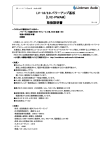


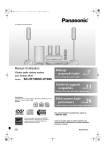
![[LV2-KIT-MINI] 取扱・組立説明書](http://vs1.manualzilla.com/store/data/006570494_2-917345bb2fd6a7694b53bba6a9e032a0-150x150.png)
